By Dr. Chris M. Kurian and Dr. Azim Khan
This article was first published on the The Student Doctor website. It is reprinted here with permission.
Many aspiring health professionals are attracted to opportunities that impact health outside the nation’s boundaries, but they find limited advice on preparing for a career in global health. In this article, Dr. Chris Kurian and Dr. Azim Khan detail the importance of global cultural competency for students seeking to serve as health professionals.
In today’s highly interconnected, globalizing world, impacts are not confined to national boundaries. The HIV/AIDS pandemic, SARS, and most recently, COVID-19 have driven the importance of addressing healthcare issues globally.
The uneven pace of development and the unequal movement of money, people, goods, and technologies across countries have translated into growing health disparities worldwide, including migration-related health problems, new infectious and lifestyle diseases, and mental health challenges. Health crises contribute to economic downturns and exacerbate the effects of conflict and climate change, with the costs borne disproportionately by the most vulnerable.
We present the benefits of global health education for aspiring health professionals who want to make a local, regional, national, or international impact on significant health challenges.
What is global health?
Global health makes sense of the patterns of existing and emerging health problems across time and the globe, understanding their determinants and assessing their impacts on health, quality of life, morbidity, mortality, and societies and economies. Planning and implementing impactful global solutions requires mobilizing financial commitments to develop frameworks, institutional and programmatic strategies, governance mechanisms, policies, and regulations that span sectors beyond health and healthcare systems.
Why doctors in global health?
Doctors who care about social justice and health equity can help design more equitable healthcare systems. Physicians can frame epidemiological priorities in a multidisciplinary global health team with programmatic, operational, and financial sustainability questions. In their global health education, doctors learn and act in three distinct, interrelated aspects of health systems: service and program delivery, research, and policy.
Studying global health has broadened my viewpoint and allowed me to see my medical studies from a global perspective. It has also informed the span of the impact I can make as a physician in the future as I seek to dismantle health inequities locally and globally.
Pre-med student Joel Burt-Miller
Students exposed to different healthcare systems are more likely to develop the skills and knowledge needed to be effective physicians. Joel Burt-Miller, a rising medical student, studied community health and social policy in South Africa (through an SIT program). He says, “Studying global health has broadened my viewpoint and allowed me to see my medical studies from a global perspective. It has also informed the span of the impact I can make as a physician in the future as I seek to dismantle health inequities locally and globally.”
Service and program delivery
Medical students learn from technological innovations and low-cost technologies developed in resource-poor settings. For example:
- Solar-powered primary health care centers in the Indian state of Gujarat reduce electricity expenses and help fight global warming.
- Swasthya Swara is a two-day rural health initiative where traditional healers document the role of traditional health knowledge, science, and its current relevance.
- Organic farming can alleviate community health problems.
Healthcare innovations from developing countries can be used to improve access to care in developed countries. Doctors should consider how effective social systems are in delivering high-quality, cost-effective, inclusive, and respectful care to marginalized communities. Finally, in addition to the experience gained from diverse pathologies and presentation of diseases, global health experience helps doctors become more culturally sensitive with domestic, marginalized communities.
Global health experience helps doctors become more culturally sensitive with domestic, marginalized communities.
Practical experience and employment opportunities
Study abroad offices organize internships and practicums with non-governmental (NGO) and government organizations like USAID, the UK’s Department for International Development, and multilateral institutions like the UN and the World Health Organization. Through these partnerships, students can work with other clinicians who serve as country managers, technical advisors, or domestic administrators.
Students who work with organizations involved with long-term development or humanitarian relief can gain experience with program development, education and training, monitoring and evaluation, and providing technical assistance or clinical and surgical services. Clinical experience in hospitals and healthcare institutions adds value to students’ applications and motivations to pursue global health education. Internships can help doctors to propose and evaluate policies that improve healthcare access and equity.
Research
Many global health programs offer graduate degrees for completing a supervised capstone project. Students can work in infectious disease field labs or humanitarian and international clinical interventions by organizations like Médecins sans Frontières.
Rather than just looking at how well a therapeutic intervention changes morbidity or mortality, students with a global health focus learn to evaluate real-world effectiveness and sustainability.
Rather than just looking at how well a therapeutic intervention changes morbidity or mortality, students with a global health focus learn to evaluate real-world effectiveness and sustainability (Nelson et al., 2012). Local research can be conducted with a worldwide perspective to learn from other countries and adapt successful solutions to local needs. Finally, research projects can document best practices for marginalized patients and develop innovations to improve equity and access to inclusive, respectful care (Chen et al., 2020).
The School for International Training (SIT) is an original training institution for Peace Corps volunteers and offers 80+ study abroad programs for undergraduate and graduate students. This article is provided without financial conflicts of interest or other relationships to disclose with HPSA/SDN.
The Google Bard chatbot was used to edit this article as drafted in July 2023.
References
Chen X, Li H, Lucero-Prisno DE 3rd, Abdullah AS, Huang J, Laurence C, Liang X, Ma Z, Mao Z, Ren R, Wu S, Wang N, Wang P, Wang T, Yan H, Zou Y. (2020 April) What is global health? Key concepts and clarification of misperceptions: Report of the 2019 GHRP editorial meeting. Global Health Research Policy. 7;5:14.
Nelson, B.D., Kasper, J., Hibberd, P.L. Thea, D.M., Herlihy, J.M. (Sep 2012) Developing a Career in Global Health: Considerations for Physicians-in-Training and Academic Mentors. Journal of Graduate Medical Education. 4(3): 301–306.
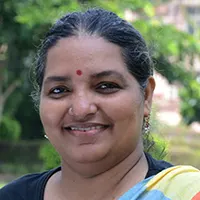
Chris M. Kurian is faculty with SIT’s MA in Global Health and the undergraduate program in Public Health, Gender, and Community Action.
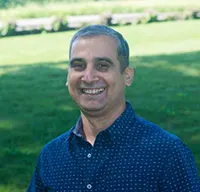
Azim Khan is an associate professor and co-chair of SIT’s MA Global Health. He is the director of SIT’s International Honors Program in human rights and co-chair of the MA in Global Health.
“The program taught me that these challenges are not a question of the human capability to produce better technology, but rather, they are a question of the human capability to act as better humans towards one another and our planet.”
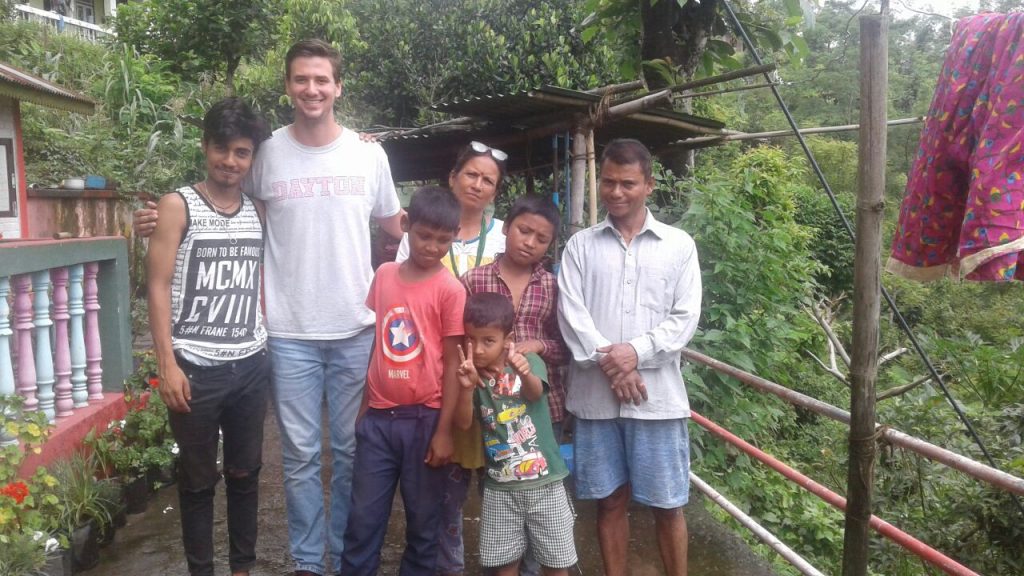
By Jared Marsh
SIT India: Agroecology and Food Security in the Himalaya
Summer 2018
This program was truly one of the best experiences of my life.
What first attracted you to this program?
As a student passionate about sustainability, I was deeply interested in learning about how the climate crisis was impacting agriculture. When I saw the opportunity to work alongside farmers in Himalayan villages as part of the Sikkim Agroecology program, I knew it was the opportunity I had been looking for. Living in Sikkim and working alongside the passionate and knowledgeable SIT faculty and farmers genuinely had a profound impact on me. Not only did the program and people change the way I see the world, but I changed my future trajectory because of it.
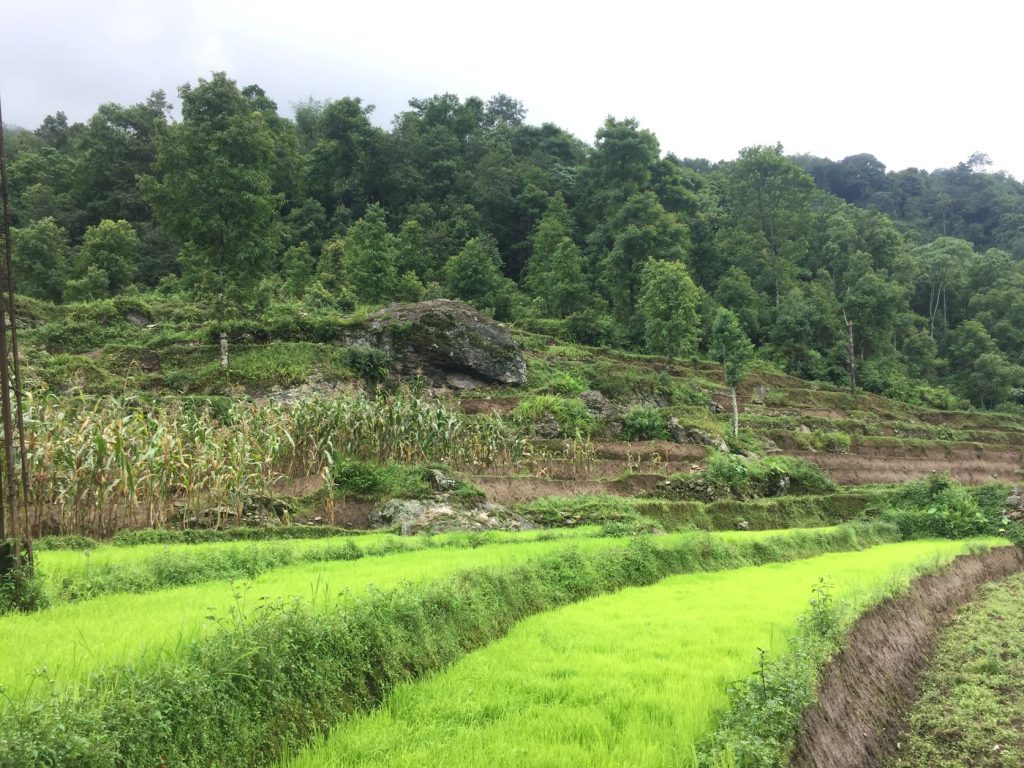
Their generational knowledge about the land and farming practices was nothing short of astounding.
What’s your fondest memory of your time in Sikkim?
While in a town called Chalamthang outside of Gangtok, Sikkim, our group, made up of six students and three SIT faculty, embarked on a sustainable farm tour led by a regionally renowned scientist. We had spent the morning learning about sustainable farming practices and now was the time to see them in action. So, we walked from farm to farm learning from the farmers. Their generational knowledge about the land and farming practices was nothing short of astounding. This was coupled with the fact that we were literally on the side of the Himalayan mountains surrounded by the greenest vegetation I had ever seen. After walking many miles, we stopped for a rest and unwound by swimming in a stream. Truly unforgettable.
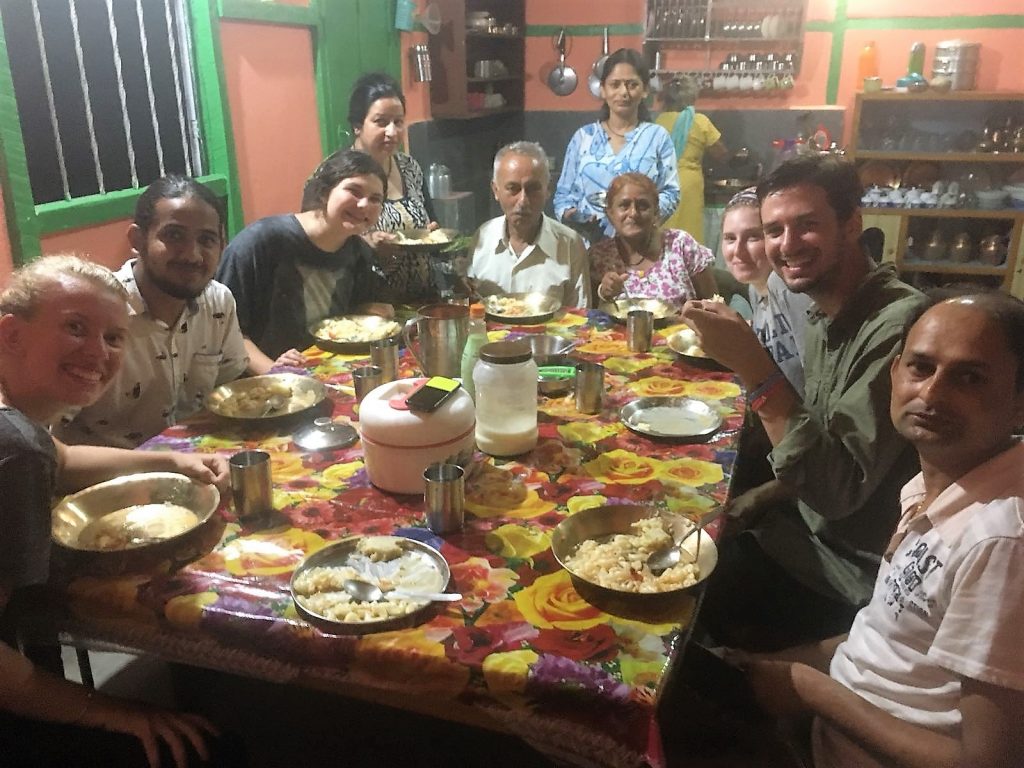
I still carry with me in spirit and practice to this day … the power of a group of people sharing a meal …
What was unexpected about your experience?
Aside from making lasting friendships and connections, an outcome of the program of the program was my completely shifted worldview. I anticipated a change and widening of my perspectives, but when I came home, I realized how inspired I truly had become by the SIT faculty and program partners to implement changes into my own life. To this day, my mother still attributes many things I do to my time in India and recognizes how the program has challenged me to grow in ways that I would not have been exposed to anywhere else. For this I am grateful to the SIT faculty and our homestay families.
Did your experience change the direction of your academic or career path? Did it reinforce it?
I entered the this program as a mechanical engineering major who thought better technology was needed to solve the world’s problems. After my experience in India, I came back to the University of Dayton and decided to change majors to human rights studies and completely changed my career trajectory for the better. While I still believe better technology can help address many of the world’s challenges, the program taught me that these challenges are not a question of the human capability to produce better technology, but rather, they are a question of the human capability to act as better humans towards one another and our planet.
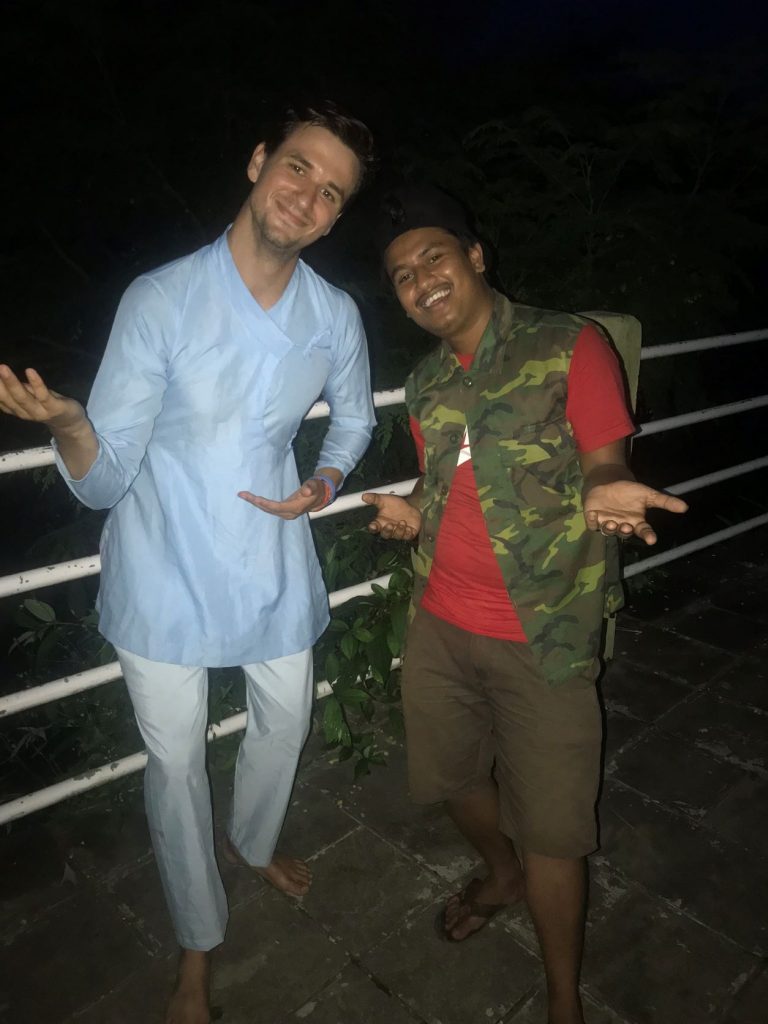
We would find ourselves carried away by music and joy as we danced.
Describe something fun about the program.
Something I still carry with me in spirit and practice to this day is the power of a group of people sharing a meal and the joy from those people dancing together. Often, after ending a day researching or working on projects, we students along with the faculty and homestay families would share a meal together and we would find ourselves carried away by music and joy as we danced. My time in Sikkim and throughout India was accompanied by some of the best food I have ever tasted, amazing people, and an inspiration to dance that stays with me to this day.
Registration now open for nearly 40 SIT summer programs
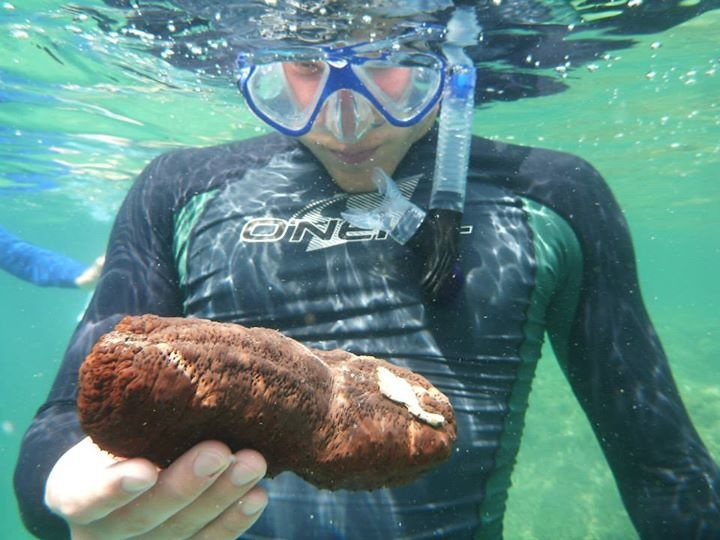
If you haven’t yet begun planning for next summer, this is a great time to start.
Registration opens Wednesday, Sept. 15, for 38 SIT summer 2022 study abroad opportunities. Included are new programs that encompass art and social change in Eastern Europe; hip-hop music and decoloniality in Senegal; climate change in Jordan; peace-building and human rights in the Balkans; human trafficking in the Netherlands; food security in Italy; epidemiology in Argentina; and urban design and social justice in Spain.
“SIT has historically expanded the frontiers of international education, creating global opportunities of learning and cultural immersion for thousands of students a year across all continents,” notes SIT Dean of Faculty Dr. Said Graiouid. “The summer 2022 portfolio maintains that tradition with programs that focus on social, political, economic and scientific arenas and in diverse historical periods and geographical settings.”
Students are challenged to embrace a human-centered, comparative approach …”
SIT’s immersive programs next summer will take place in sub-Saharan Africa, the Asia Pacific region, Europe, and the Middle East/North Africa.
SIT will also once again offer virtual internships that allow undergraduates to build invaluable professional and academic experience on a range of subjects. These include two Jordan internships, in counseling and humanitarian action, and in community empowerment and climate change; women’s rights in Cameroon; education and social change in Chile; sustainability in India; public health in Kenya; human rights in Serbia; diplomacy and international relations in South Africa; and development and gender in Vietnam.
Regardless of which program they choose, says Graiouid, “students are challenged to embrace a human-centered, comparative approach in which they engage with resources and the competencies needed for the development of the skills of critical literacy, intercultural communication, and intellectual polity.”
Alix Swann, an international studies major at Spelman College, did a virtual internship on the Chile program in fall 2020 in which she worked with a women’s collective that fights street sexual harassment. Alix’s task was to teach about U.S. laws and policies on sexual harassment in the workplace and digital sexual harassment.
“Before this internship, my viewpoint was solely from a U.S. perspective, and I now no longer try to relate everything to the U.S.,” she says.
Yardena Meyerhoff, a physics and astronomy major at Whitman College, also did the Chile program, interning with the Colegio de Profesoras y Profesores de Chile to conduct a comparative analysis of Chile’s standardized testing system and the effect of standardized testing on student learning and development.
“My meetings with my internship advisor were very organic and natural and would often go in fascinating and sometimes unexpected directions. Our conversations made me think about my own experiences with education growing up in Minnesota, and how education systems around the world suffer from similar inequalities,” Yardena recalls.
SIT’s virtual language programs have also been popular during the pandemic. Language options for summer 2022 include all levels of Arabic (from Jordan); Swahili (Kenya); Hindi (India); Nepali and Tibetan (Nepal).
New SIT programs for summer 2022 are:
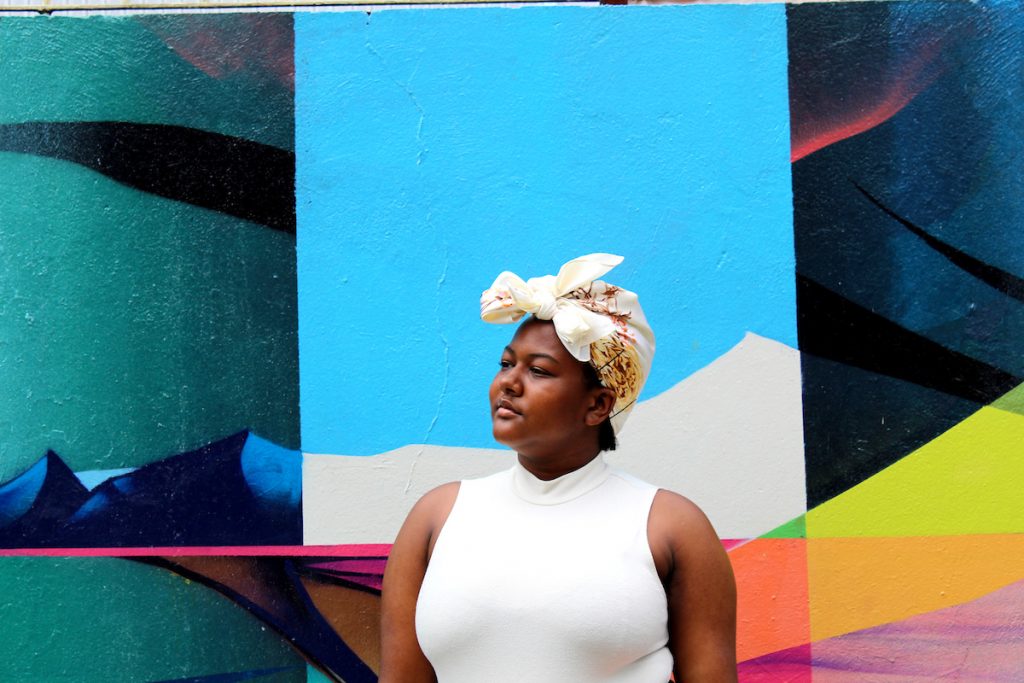
Argentina: Epidemiology and Healthcare Management—Through SIT’s close partnership with ISALUD, the nation’s top health university and think tank, examine urban epidemiology, health inequalities, and the challenges of managing health services and policies to expand access to healthcare.
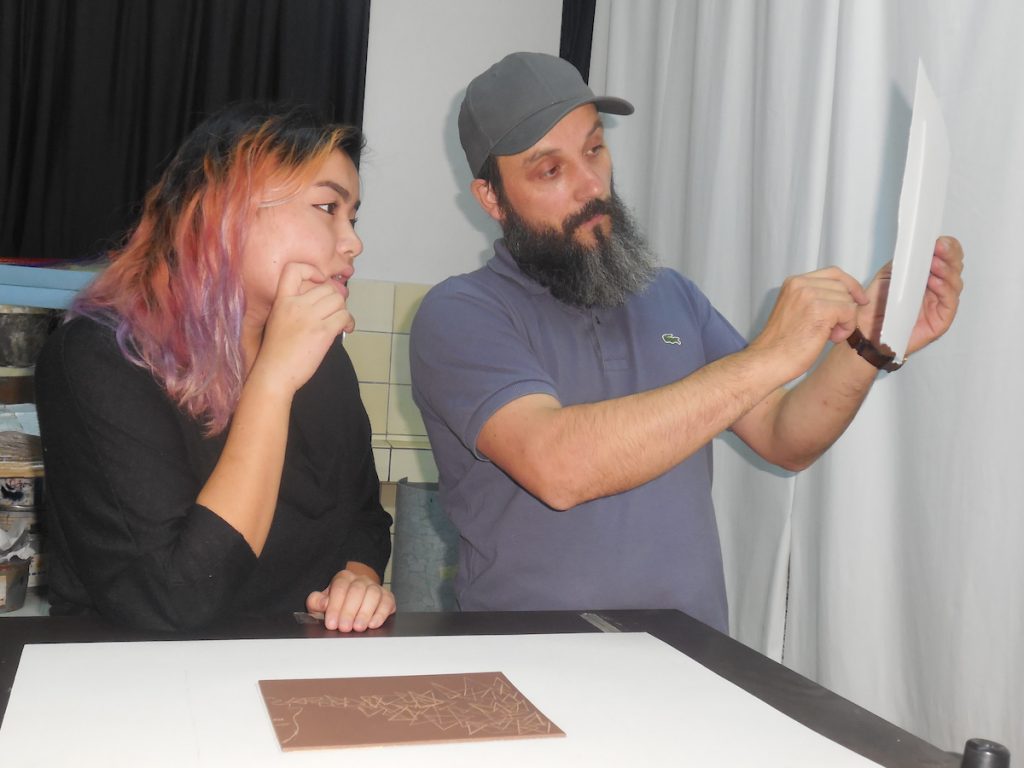
Czech Republic: Studio Arts—Explore photography, creative writing, or contemporary dance through an intensive arts workshop while examining debates around art, politics, and society.

Italy: Food Security and Nutrition—Delve into sustainable agriculture on a Tuscan estate and explore how international experts are confronting challenges of food security, nutrition, and health.
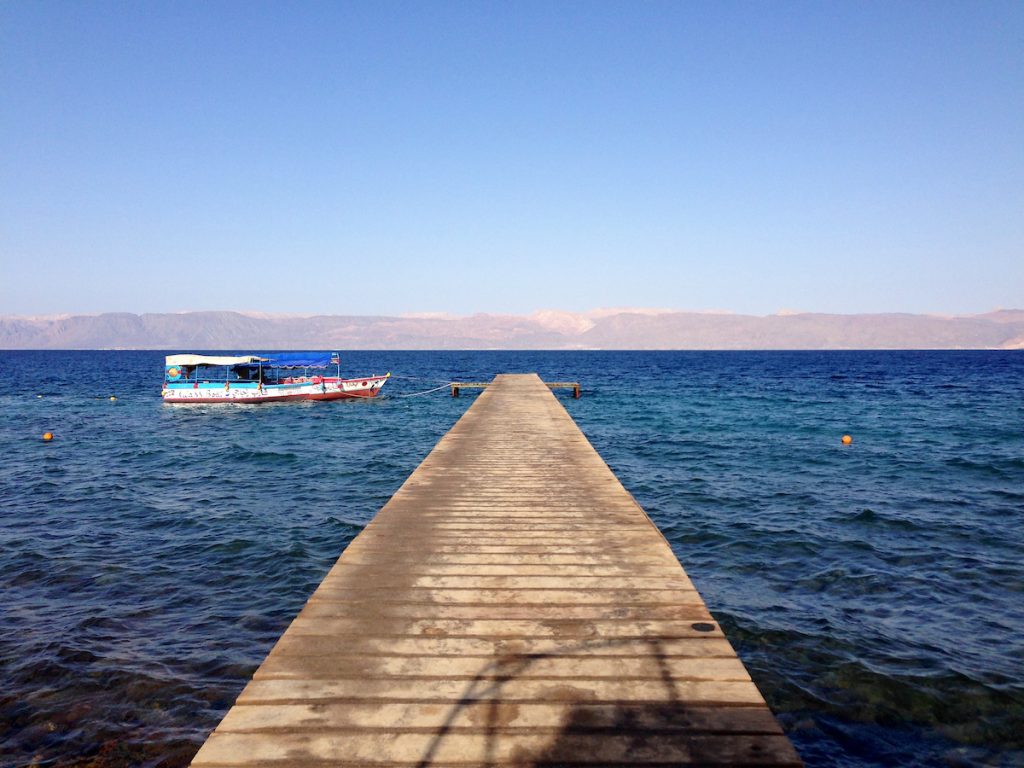
Jordan: Community Empowerment and Climate Change Internship—Gain professional experience with a UN or government agency or NGO working with youth and vulnerable groups on community empowerment and environmental sustainability.

Netherlands: Human Trafficking, Sex Trade, and Modern Slavery in Europe—Examine diverse areas of human trafficking and the sex trade, including the relationship between sex workers and broader societies.
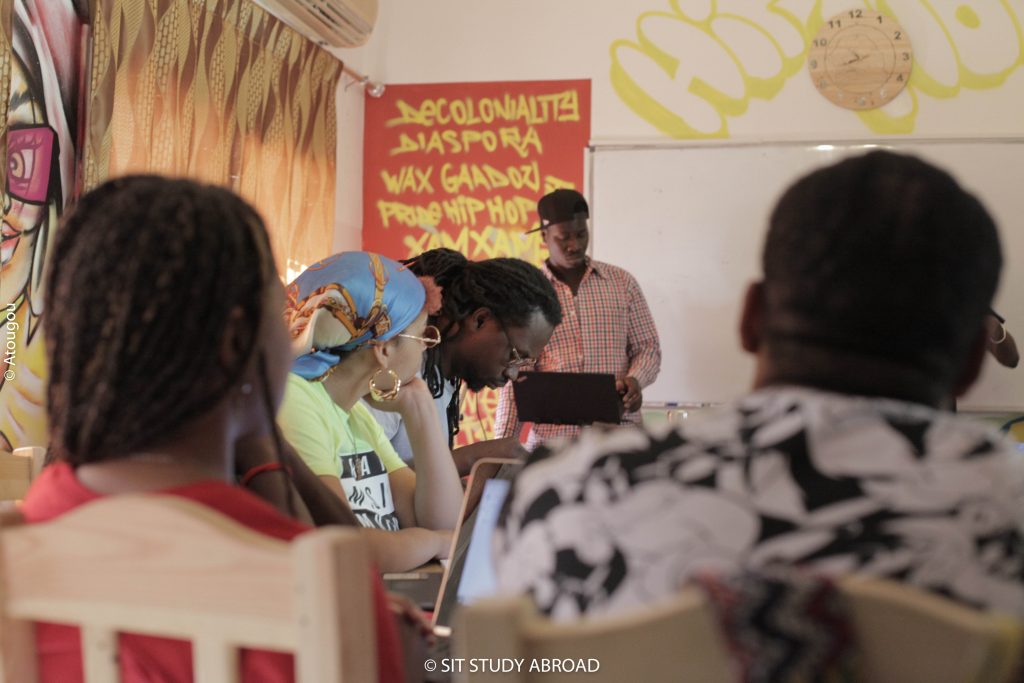
Senegal: Hip-Hop, Resilience, and Black Struggles—Examine how young Africans use hip-hop to question traditional representations of Africa, imagine the continent’s future, and raise consciousness of globalization and (in)equality.
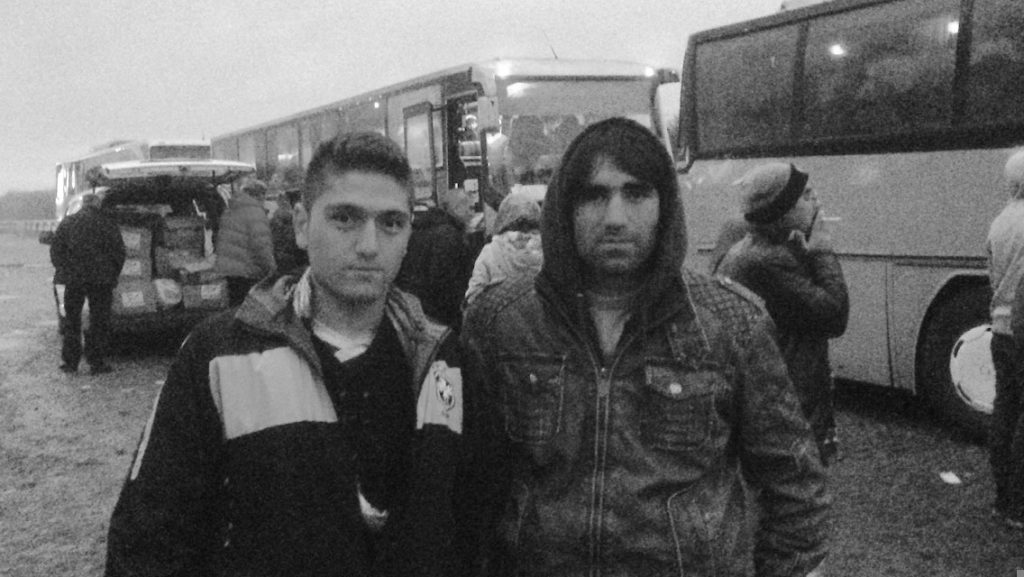
Serbia: Transitional Justice, Human Rights, and Memory Activism Internship—Look at justice, human rights, and memory in post-conflict societies and contribute to the work of an important organization with a meaningful internship.

Spain: Sustainable Urban Development and Social Justice—Explore the approaches Spanish cities are taking to pursue sustainable urban development within a social justice framework.

Switzerland: Global Health and Development Policy—Compare public health systems within the framework of international and sustainable development, humanitarian action, human rights, and social justice.
For more information about these and all SIT Study Abroad programs, visit www.studyabroad.sit.edu.
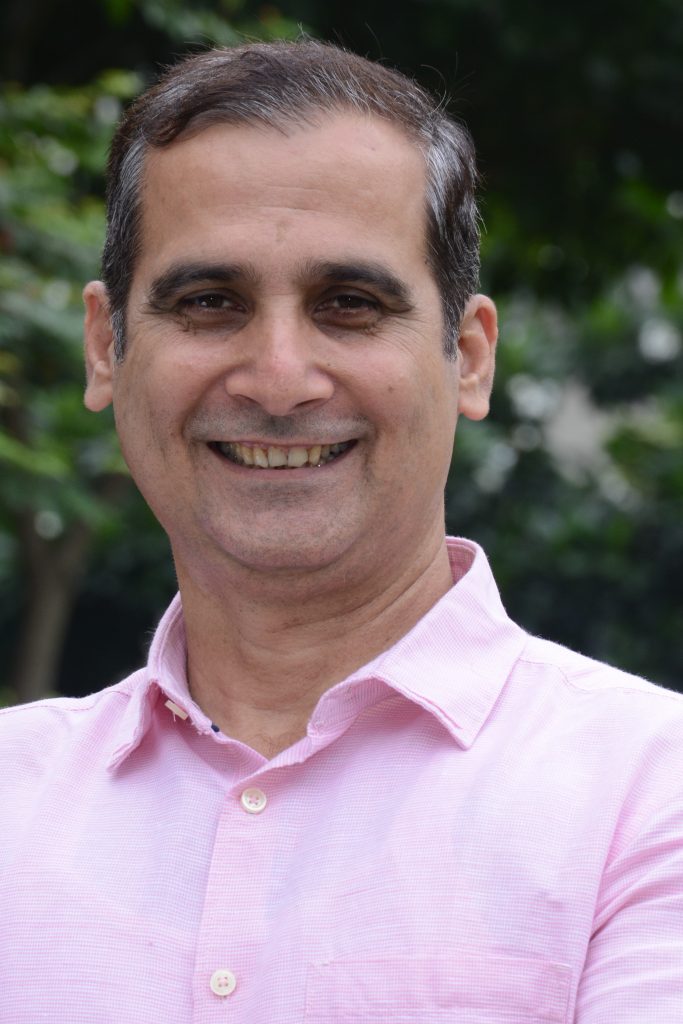
‘As a student, researcher, and professor of public health, I see exciting opportunities to learn more, research more, share more; to do a better job when humans are struck by the next pandemic.’
About 30 percent of the world’s population have so far received at least one dose of a COVID-19 vaccine. The vast majority of those have been among people in wealthier nations. In fact, only about 1.2 percent of people in low-income countries have received at least one dose of a vaccine.
Addressing this discrepancy at the G-7 summit in Belgium in June, wealthy nations pledged to provide 870 million doses for the World Health Organization’s COVAX initiative, including a pledge of half a billion doses from the United States and 100 million from the UK.
To talk about these pledges and the larger question of a global response to the pandemic, we spoke with Dr. Azim Khan, who brings a broad and multi-disciplinary background as a leader of SIT’s master’s and undergraduate health programs in India. Azim has a PhD in health, gender, and human rights from Aligarh Muslim University; an MA in human rights from the University of London; a master of laws from Aligarh Muslim University; and a bachelor of laws with distinction in constitutional law from the University of Lucknow.
Why do we need a global response to this crisis?
We have learned that no country, no community can isolate itself from a pandemic, thinking ‘We will be fine if we cut ourselves off from the rest of the world’. Today, that’s almost impossible. COVID-19 comes 100 years after the Spanish Flu of 1918 that went on for two years and caused human catastrophe, but 1918 was very different. The world was not as connected and mobility was not so high, so it took a long time to spread. Look at how quickly COVID-19 spread and caused havoc all over the world. With this kind of pandemic—at this level of magnitude—we can only come out of this when there is a coordinated global response.
What have wealthy nations done right, and what should the be doing differently?
It’s really important for developed countries that have more resources to invest more. There are countries around the world that are barely able to meet basic needs of food and shelter. We can only successfully fight the pandemic when there is a coordinated global response where higher-income countries support those that do not have similar levels of resources. This is not like the Ebola outbreak, which was an epidemic but was concentrated in a specific geographical location. There seems to be no country that COVID has not reached.
Even if countries that have resources think they can vaccinate their entire population and try to contain the pandemic within their territory, they need to understand that the pandemic won’t go away unless we are able to successfully defeat the virus all over the world.
Even if countries that have resources think they can vaccinate their entire population and try to contain the pandemic within their territory, they need to understand that the pandemic won’t go away unless we are able to successfully defeat the virus all over the world. If we had been able to put $60 billion into vaccinations along with what has been spent on health care around the world, we could have insured that every human that qualifies around the world would be vaccinated.
Countries, especially those that have resources, have been pretty self-centered, which is understandable. For any country, protecting the life and well-being of their citizens is a priority. But we need to be sure that in doing so, these countries don’t jeopardize other countries’ interests.
We have seen a sort of vaccine nationalism, which is against what we have been preaching and practicing in the post-globalization era. The scientific community, political leaders, economic resources and collective leadership should come together to create a roadmap. This is the way we’ll fight the virus more effectively.
I understand the Biden administration’s priority is to vaccinate as many people as possible as soon as possible. But we also need to look at how this affects the world. The US invested a lot of money to advance vaccine research and production. It was a very good move. This is the reason that the US does not have a lack of vaccines today. But the United States also ordered more than 50 million doses of the AstaZeneca vaccines, which have not yet gotten emergency-use authorization from the FDA. I wish that these doses were sent to the global alliance for vaccination, the COVAX initiative for smaller countries, where 50 million doses would have at least helped in vaccinating healthcare and other frontline workers. Better late than never, the White House has realized this and is now working on distribution of these vaccine doses through COVAX.
But it’s not just about the US; European countries have been fighting against themselves. All these things sidetracked the job that was expected from world leaders, especially a group like G7. World politics are shaped by these countries.
The scientific community, political leaders, economic resources and collective leadership should come together to create a roadmap. This is the way we’ll fight the virus more effectively.
We need to understand that we cannot be safe until all people are safe. This an old struggle. Infectious disease has always been a ‘Third World problem.’ Countries with limited resources struggle with all kinds of infections at different times while health systems and policymakers in high-income countries thought, ‘Epidemics are not our problem’.
Unfortunately,in the last few years the CDC had considerably cut the funding for various centers across the globe, and we saw how badly prepared the American healthcare system was in their response to the COVID-19 pandemic. In the US and the UK, doctors and healthcare workers didn’t have the capacity to deal with patients in these volumes. So, it was a huge challenge to effectively respond to the pandemic and we lost so many lives in the US, UK, Brazil, and India that could have been saved if we had had good, coordinated planning, vaccine policy and acknowledged that infectious diseases aren’t just a problem for the developing world or poor countries.
Now we must learn from these mistakes, from poor or lack of leadership that we saw around the world. We had a US president who didn’t take it seriously and we saw that although the US has a robust, advanced health system with good doctors and advanced hospitals, if there is a lack of political leadership things can still get messed up. That happened in the EU, in UK, Brazil, and in India. It happened in so many countries.
And we saw that where leadership was collaborative, transparent, science driven, and understood the importance of saving lives, those countries have done better. New Zealand, Scandinavian countries, South Korea all have done pretty well. We don’t know much about China because there is a lack of transparency in terms of data. But the worst scenarios were in places like the US, Brazil, India—all cases marked by populist politics and leaders who ignored the science and worked according to their whims and fancies. They caused a lot of misery to their countries.
… where leadership was collaborative, transparent, science driven, and understood the importance of saving lives, those countries have done better.
I really appreciate the Biden Administration’s initiative to share vaccine doses with other countries, but this could have been done in a more organized way and a few months earlier. I hope that Europe, the US, the UK, Japan, India, and Russia all join this global initiative. This is a pandemic. It can only be defeated when we work together.
What are some other factors that point to the need for a more global approach?
So many things are interconnected. The total GDP for the world was about $110 trillion before the pandemic. What happened in 2020-21 is a significant erosion of wealth; we are losing upwards of 27 percent of wealth.
Businesses are not going to function as normal unless there is control over this pandemic. How can American industry do business with industries in countries that are still fighting the virus and business activities are almost shut?
We need to understand that unless and until we defeat this pandemic, the economic situation won’t improve, even for developed countries. They have been able to support their citizens and small businesses, but you can’t boost export if other countries are not importing.
We need to understand that unless and until we defeat this pandemic, the economic situation won’t improve, even for developed countries. They have been able to support their citizens and small businesses, but you can’t boost export if other countries are not importing. So, it’s in the interest of the globe, the business community, people, and organizations to have a global initiative to defeat this pandemic.
What are some of the lessons in this pandemic for your field of public health?
Public health will be an even more interesting field, especially in the next few years as we study COVID from all angles—policy, gender, labor, economics, social impact, impact on children. A huge focus of public health is going to be understanding and studying infectious diseases in general and COVID in particular, epidemiologically, socially, economically, and clinically. So, there will be much more focus on public health. We often think of health in terms of doctors and hospitals. But we’ve seen that a pandemic requires people across disciplines, people who can insure clean water supplies and food, good governance, communication.
A huge focus of public health is going to be understanding and studying infectious diseases in general and COVID in particular, epidemiologically, socially, economically, and clinically.
For example, we know that in many places, even if technically they are free, available and affordable, accessibility to vaccines is not there. Somebody who can read English, who can get online and find a vaccine dose, someone who is technically savvy has a higher chance of accessing this vaccine than somebody who doesn’t have access to technology.
A country like India should facilitate walk-in appointments. There are clinics but if 300 people walk in, their system and resources can get overwhelmed. What happens if somebody has gone to a vaccine center thinking that he or she will get vaccinated and this person is sitting all day and then told, ‘Sorry, we’re out of stock for today. Please come tomorrow’? This person gets discouraged and, in many cases, may not turn up the next day.
So, we have done a lot of advocacy work with the government in Delhi and in other states to ensure that the vaccines are accessible and the process is user-friendly to encourage more people to get vaccinated. I’ve worked with the committees leading the campaign against COVID to support community volunteers and share the feedback with government officials to help them understand the realities and challenges on the ground.
It’s not enough to build fancy hospitals and create a good health infrastructure and say you’re doing well. Viruses have been with us; this won’t be the last pandemic. So, there is a lot of learning ahead for us. There has been a lot of misery, challenges, emotional trauma, but as a student, researcher, and professor of public health, I also see exciting opportunities to learn more, research more, share more; to do a better job when humans are struck by the next pandemic. We need to organize better and deliver better. We need to learn from each other and work together.
Dr. Azim Khan is academic director of three SIT Study Abroad programs in India: Public Health, Gender & Community Action; Traditional Medicine and Healthcare Practices; and Virtual Internship in Public Health, Community Action & Response to COVID-19 Pandemic. He is associate professor and co-chair for SIT Graduate Institute’s master’s degree in Global Health. Follow him on Twitter @azimsherwani.
This year, eight SIT Study Abroad alumni are among twenty students selected to present their research at the prestigious Human Development Conference, which will be held online February 26-27. The annual student-led conference is sponsored by the University of Notre Dame’s Kellogg Institute for International Studies. This year’s theme is “The Future is Now: Innovative Responses to Global Adversity.” Because of the COVID-19 pandemic, all students will be presenting virtually.
“On behalf of everyone at the School for International Training (SIT), I would like to extend a heartfelt congratulations to the alumni of our programs who will participate in the prestigious 13th annual Human Development Conference at University of Notre Dame, as well as all the students from across the country, and the academic spectrum, who will have the opportunity to share their development-focused research,” said SIT President Dr. Sophia Howlett.
SIT has been a sponsor of the conference since the inaugural 2008 event. Independent research is a critical component of SIT Study Abroad’s immersive, semester-long programs, which require students to complete original fieldwork, a final presentation, and a formal research paper.
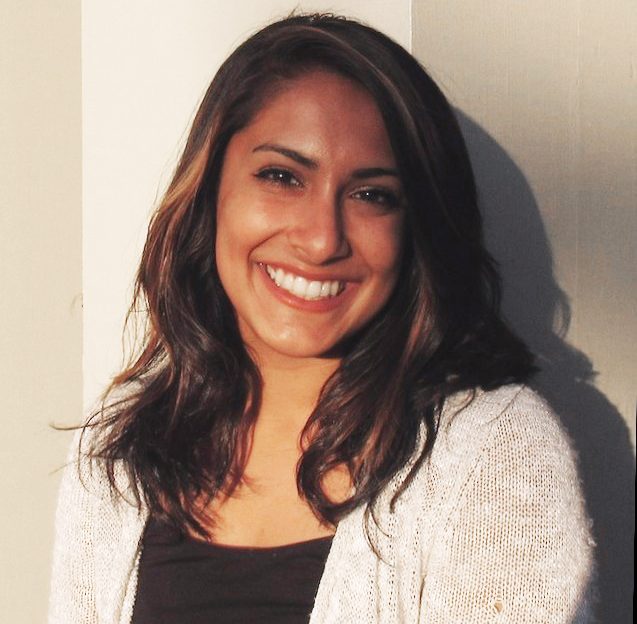
Sarah Ahmed
Psychology and Counseling
Wake Forest University
SIT India: Sustainable Development and Social Change
Research: “Breaking the Silence: Examining Mental Health Stigma, Literacy, and Access in Urban India”
My study abroad experience completely changed my academic goals! It inspired me to work in the mental health field, and starting this fall I will be starting a master’s program in Clinical Mental Health Counseling. I’m grateful for SIT for giving me the opportunity to know myself better, and in turn, know how to best serve those around me in purposeful and meaningful ways.
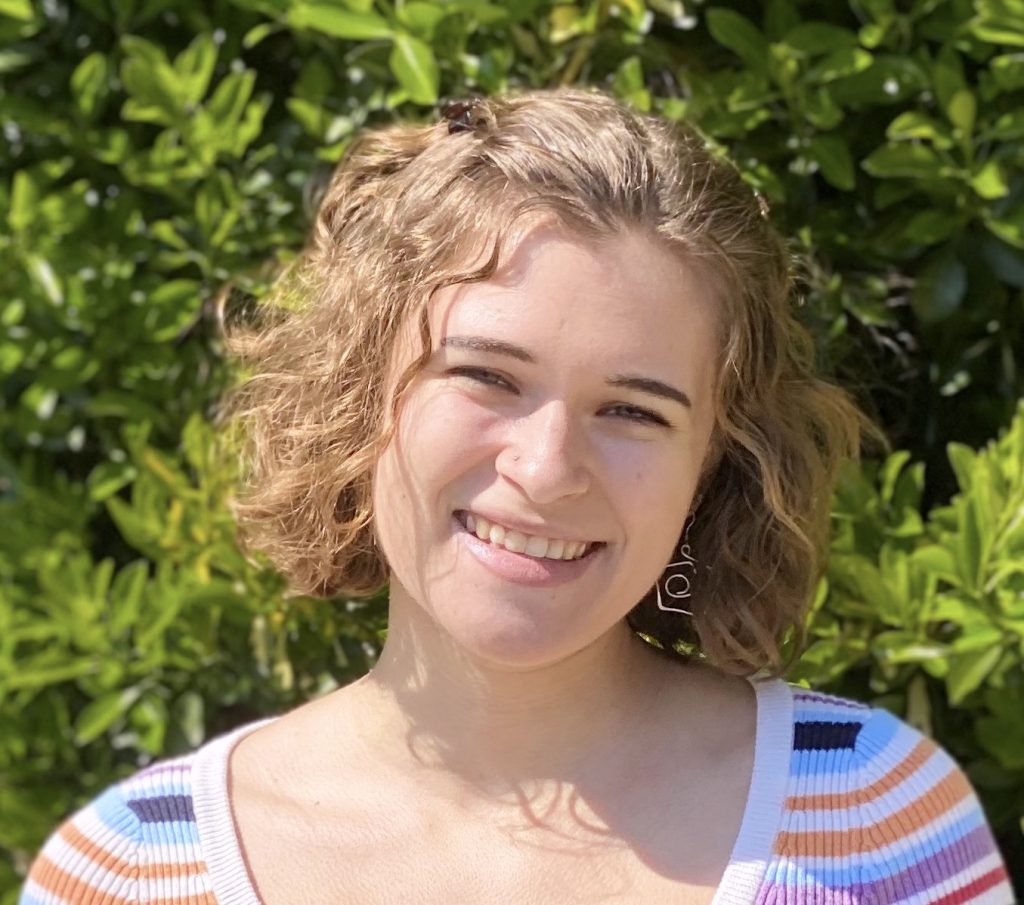
Alison Cummins
Sociology, minors in English and Creative Writing
Muhlenberg College
SIT Nepal: Development, Gender, and Social Change in the Himalaya
Research: Creating Writing During the COVID-19 Pandemic: Nepal and United States Perspectives
I settled on my research topic after being sent home from abroad because of the pandemic. I felt very dejected in my own creative writing at the time and was wondering if other writers were feeling the same. Choosing to find out through sociological research, I began to craft a research project that would help me to understand how writers were dealing with the pandemic. I reached out to Nepali and American writers and was soon on the path to understanding the cultural impacts of the pandemic on creative writers in these two countries.

Katherine Fulcher
Political Science and Hispanic Studies
University of Tennessee, Knoxville
SIT Mexico: Migration, Borders, and Transnational Communities
Research: “‘A Tale of Twinned Cities’: A Comparative Analysis to Predict Potential Twinning on the US-Mexico Border”
My research looks specifically at the state of border twinning across Europe, but the implications of this research could help policymakers understand the potential for a similar process in other regions of the world, like the US-Mexico border. Following graduation, I plan to work for a year before applying for a graduate program in international relations or public policy.
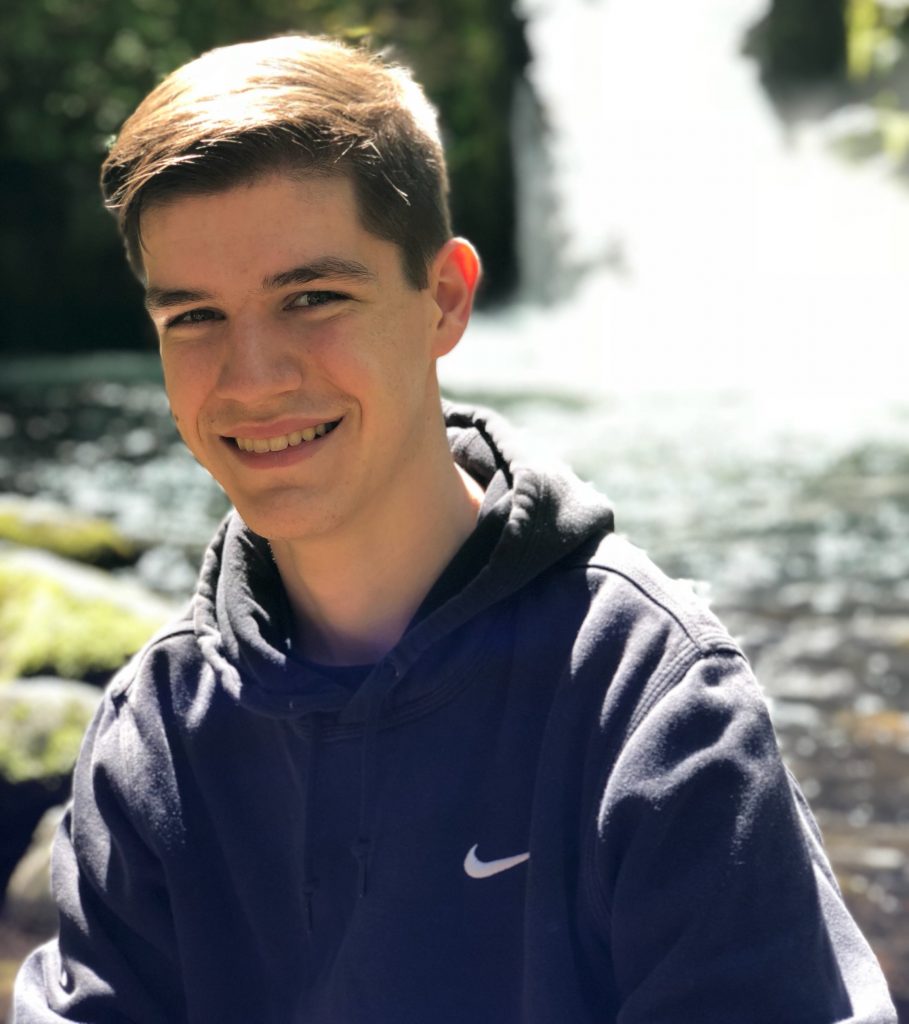
Samuel Johnston
Economics and Mathematics
Willamette University
SIT Uganda: Global Development Studies
Research: “Coordination or Clustering: Logistic Estimation of Aid Fragmentation in Uganda”
I first settled on the topic during our Contemporary Global Development seminar course, where multiple guest lecturers discussed the frustrating lack of cooperation by international donors in Uganda and many other countries….After completing a primarily qualitative and literature-focused study for my SIT Independent Study Project, I decided to continue my research in a more quantitative sense for my senior thesis in economics at Willamette…In the future, I’m interested in pursuing graduate study in economics with a specific focus in development and international cooperation.
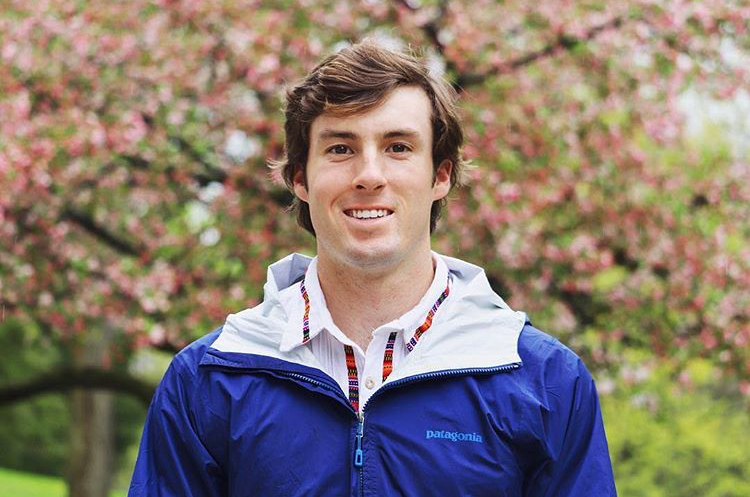
Daniel Krugman
Anthropology, minor in African Studies
Middlebury College
SIT Uganda: Global Development Studies
Research: “Survival as Solidarity: Refugee Exchange, Humanitarian Violence, and Social Cohesion in Mirieyi Settlement, Northern Uganda”
After graduation, I hope to continue to understand the dynamics of global forced migration and work towards the abolition of refuge in graduate school.
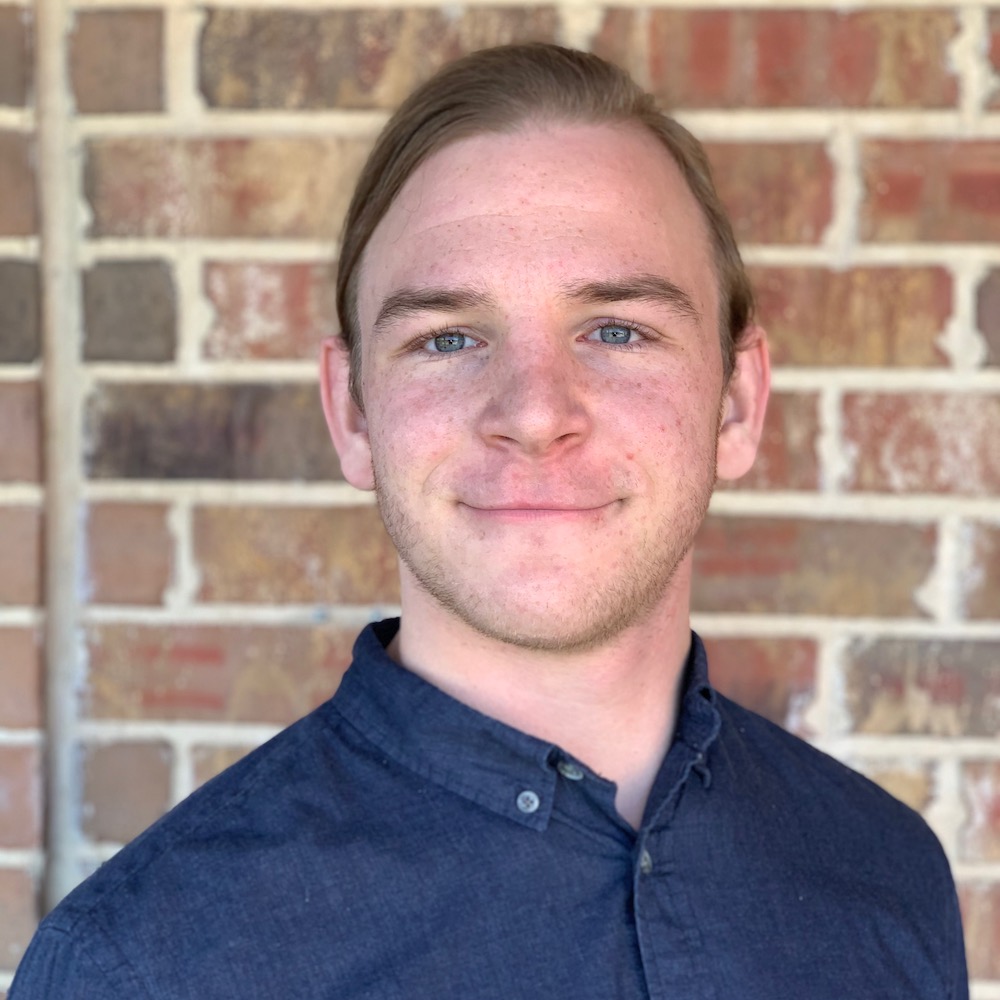
Jaran Rudd
Anthropology and Spanish
Austin College
SIT Ecuador: Development, Politics, and Languages
Research: “How Covid-19 has Deepened the Environmental Crisis Among the Kichwa: A Discourse Analysis”
I settled on this research topic after Covid-19 disrupted our study abroad experience and I began to wonder how the Kichwa community that our group visited was reacting to this pandemic. When I learned that floods and oil spills were also causing troubles for their community, I knew that I needed to look at the question of development to make sense of this unique situation…I hope to pursue a PhD in anthropology and continue investigating the role of international financial institutions, NGOs, and the political-economic power of language across multiple cultural contexts.
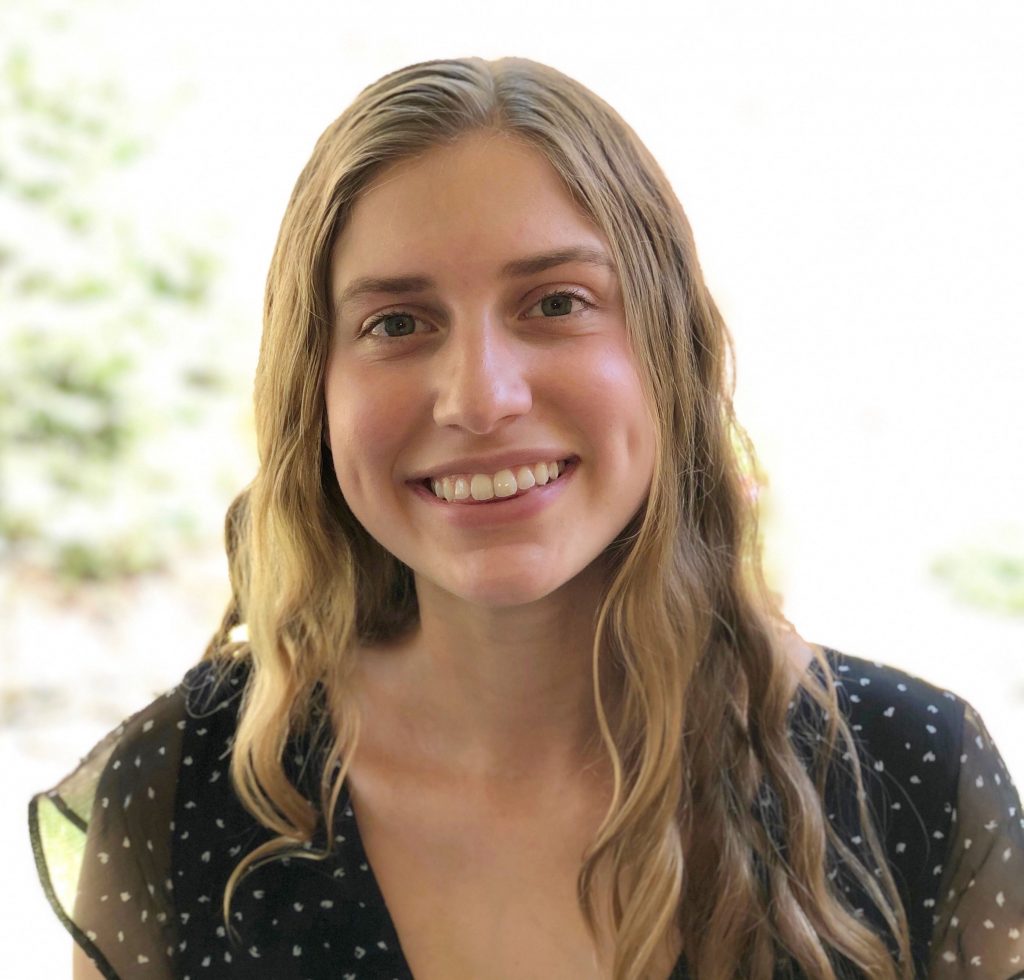
Noah Stanton
Public Health and History, minors in Anthropology and Chinese
Vanderbilt University
SIT India: Public Health, Gender, and Community Action
Research: Mother Nature Meets Modern Woman: An Exploration of Environment, Gender, and Urbanism Amongst Delhi’s Middle Class
I decided on my research topic after reading a book called “Ecofeminism” by Vandana Shiva, a renowned Indian activist….India’s fascinating history of rapid development and urbanization, coupled with its unique cultural ties to nature, inspired me to explore the Ecofeminism framework in the context of women in Delhi. Since departing from India, I have become much more focused on issues of women’s health, international development, and environmental justice; this shift has informed my job search as I look to work with a global health NGO after I graduate this May.
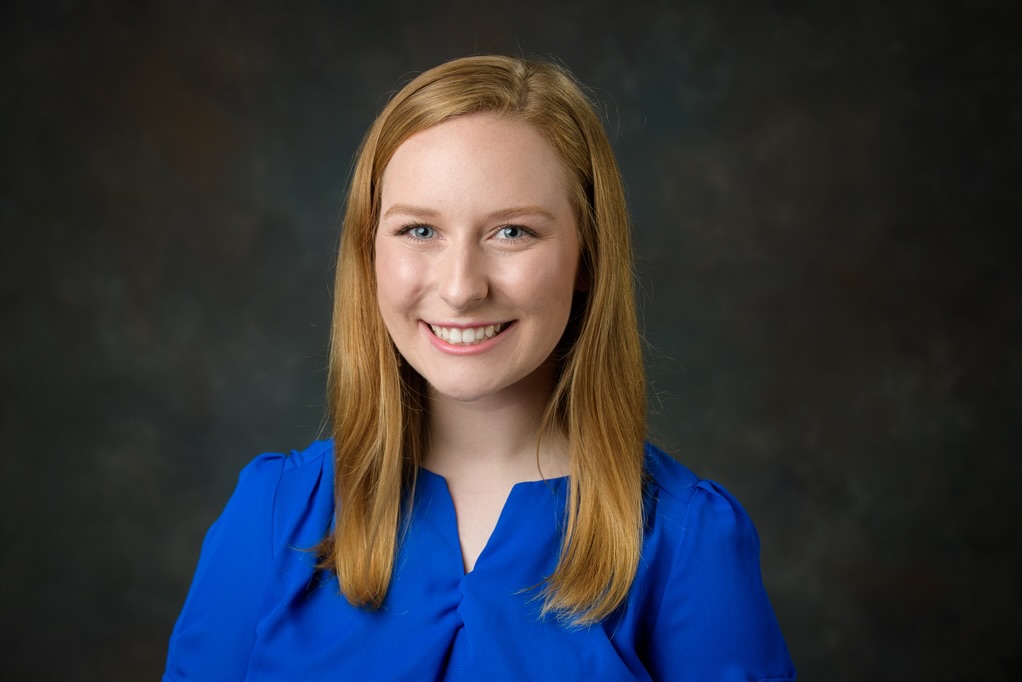
Liz Williams
Political Science and Sociology
University of Tulsa
SIT Senegal: Global Security and Religious Pluralism
Research: Thiéboudienne: A Look into the Intersection of Cuisine and Community in Senegal
The emphasis placed on decolonial thinking [during my SIT program] by both students and faculty alike has forever changed my perception of academia. The lessons I learned in Senegal and throughout my research process impact the interactions I have with systems and institutions daily. I am now better equipped to understand my positionality as a student and researcher and how my disciplines operate within the Western gaze. I intend to take this knowledge with me to law school and continue to challenge colonial ways of thinking and operating.
Launching this fall: MAs in Global Health Policy, Administration & Management; International Education; Diplomacy & International Relations
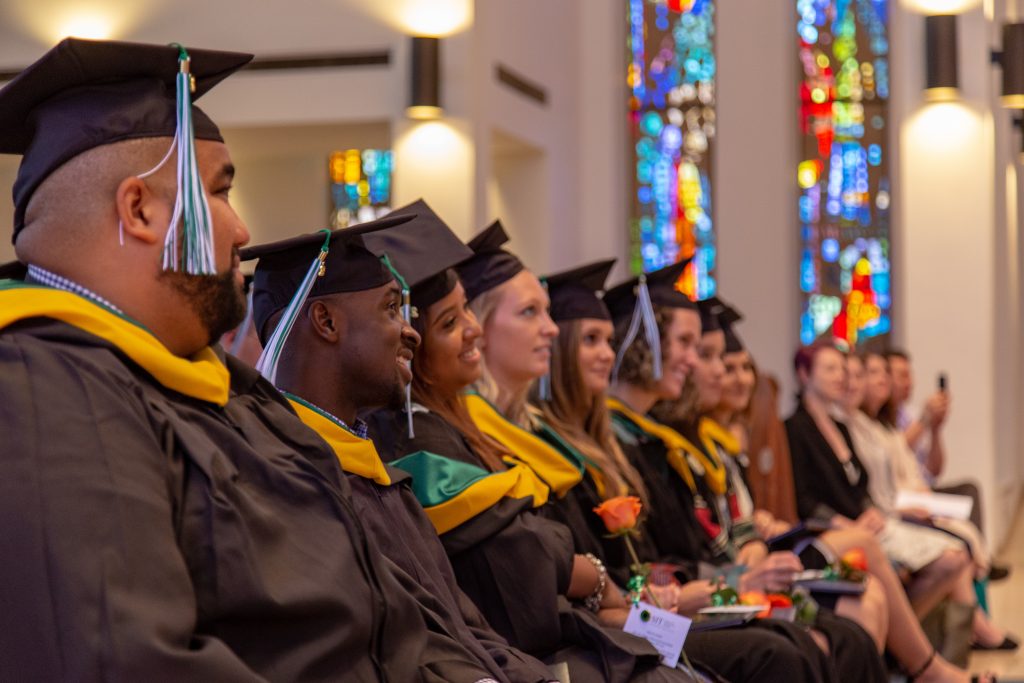
BRATTLEBORO, Vermont – School for International Training has received accreditation for three innovative new global master’s degrees in Diplomacy & International Relations; International Education; and Global Health Policy, Administration & Management.
The Vermont-based SIT Graduate Institute received its accreditation from the New England Commission of Higher Education, the regional accreditation agency responsible for colleges and universities in New England. The one-year Global MAs are delivered entirely abroad, with coursework in SIT centers around the world capped by students’ final practica, which, for most programs, may be completed in the U.S. or abroad.
The new MAs launch in September, led by faculty in the U.S., South America, Europe, the Middle East, Southeast Asia, and Africa, who will guide students through programs designed to develop leaders who can respond to some of the most critical global issues of our time, including global health crises, economic inequality, natural resource degradation, and political and ethnic conflict.
“These one-of-a-kind global degrees build on SIT’s nearly 90-year history of training the next generation of innovative, compassionate global leaders at a time when the world faces unprecedented challenges,” said SIT President Dr. Sophia Howlett. “Our dedicated faculty around the world have carefully designed these programs to help students learn to tackle urgent issues of the day in every corner of the globe and turn those skills into careers.”
The new degrees expand on SIT Graduate Institute’s stable of other accredited global MAs in Climate Change & Global Sustainability; Development Practice; and Humanitarian Assistance & Crisis Management, also based in cities around the world.
SIT also offers low-residency master’s degrees in Sustainable Development, Peace & Justice Leadership, TESOL, International Education, and a self-designed degree in Intercultural Service, Leadership & Management, putting SIT at the forefront of global institutions sending effective leaders, professionals and change-makers into the world.
Many of SIT’s graduates go on to work in high-level positions with organizations such as the United Nations, nongovernmental organizations, and major foundations across the globe.
To learn more about SIT Graduate Institute programs, visit our website. To learn more about the School for International Training and its programs for students at every age on every continent, see SIT’s website.
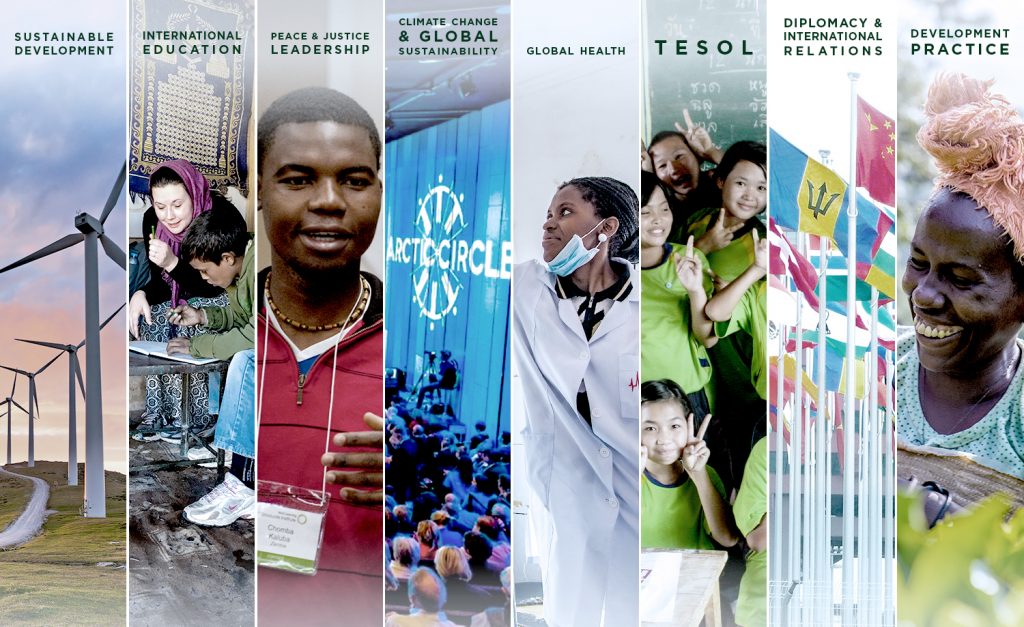
Meet our Global and Low-Residency program chairs to find the MA that’s right for you
This new SIT webinar series presents a great opportunity to learn about SIT’s Global and Low-Residency master’s degree programs.
Global Programs Webinar: Wednesday, January 8 – 9 a.m. (Eastern U.S.) with Dr. Joe Lanning (MA in Development Practice) and Dr. Richard Walz (MA in Climate Change & Global Sustainability)
Low-Residency Programs Webinar: Friday, January 17 – 12 p.m. (Eastern U.S.) with Dr. Bruce Dayton (MA in Peace and Justice Leadership) and Dr. Udi Butler (MA in Sustainable Development)
Global Programs Webinar: Tuesday, January 21 – 12 p.m. (Eastern U.S.) with Dr. Bruce Dayton (MA in Diplomacy & International Relations) and Dr. Sora Friedman (MA in International Education)
Low-Residency Programs Webinar: Wednesday, January 22 – 4 p.m. (Eastern U.S. ) with Dr. Leslie Turpin (MA in TESOL) and Dr. Sora Friedman (MA in International Education)
Global Programs Webinar: Monday, January 27 – 9 a.m. (Eastern U.S.) with Dr. Steve Wandiga & Dr. Azim Khan (MA in Global Health, Administration & Management) and Dr. Bayan Abdulhaq (MA in Humanitarian Assistance & Crisis Management)
Introducing new countries and a range of exciting trips this autumn, including an excursion to Bangladesh to study climate change and microfinance, and a new sustainability and environmental justice program in Portugal.
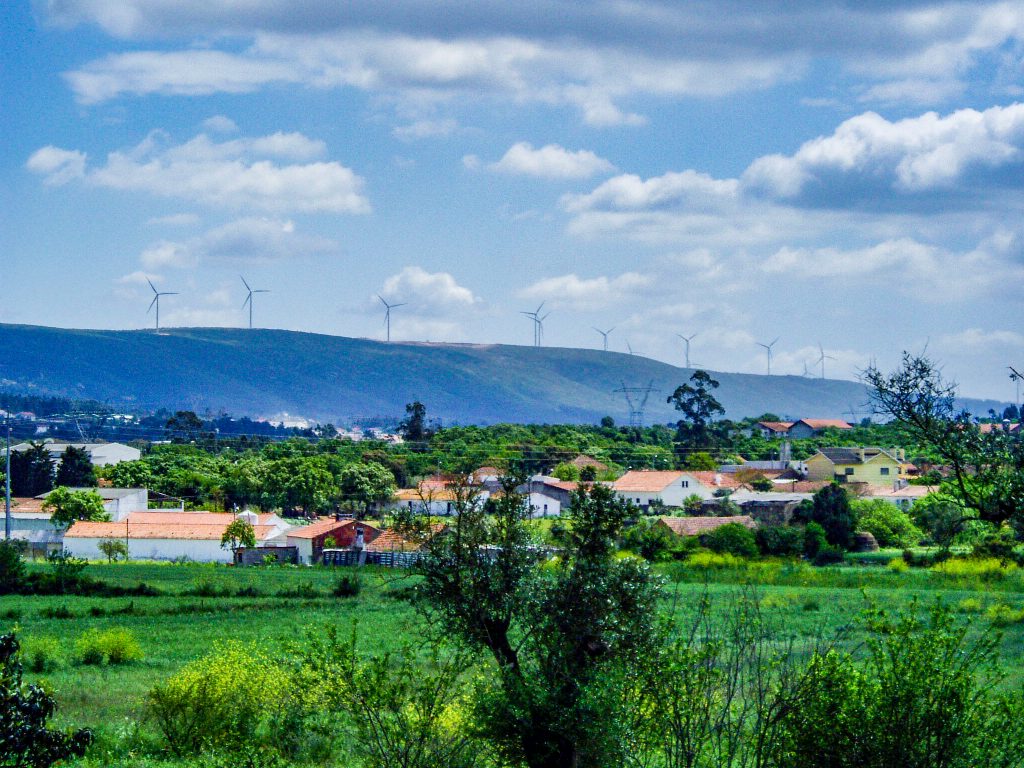
School for International Training this week opened enrollment for its SIT Study Abroad programs in fall 2020, offering a new slate of locations and excursions with an emphasis on climate change, microfinance, sustainability, and environmental justice.

Trilochan Pandey, academic director of SIT’s India: Sustainable Development and Social Change program, will lead a new excursion to Bangladesh to explore the country’s progress in areas of development in comparison with India, despite its slower economic growth, as well as how communities are learning to adapt to the effects of climate change.
The trip to Bangladesh will also include a visit to the world-renowned Grameen Bank in Dhaka, a community development bank that, since 1976, has pioneered ways to make small loans to struggling rural populations.
“Bangladesh is a place where students can learn about microfinance and the impact it has on empowering people,” said Pandey. “It is also a hot spot of climate change, with the risk of floods and sea level rise affecting a large population.”

SIT Study Abroad also is launching its first program in Portugal in fall 2020, based in Lisbon, the European Green Capital for 2020. Students who enroll in SIT’s Portugal: Sustainability and Environmental Justice program will learn about innovative approaches to renewable energy technologies, social equity challenges, and the core principles of economics in Portugal, which is working to map out alternative designs in green policies.
Aside from being the European Green Capital, Lisbon, a port city, has a unique history of overcoming environmental adversity and hardship. In 1755, the Great Lisbon Earthquake nearly destroyed the entire city, triggering a tsunami and fires that razed 85 percent of the buildings and killed thousands. The slow and arduous process of rebuilding Lisbon still looms large in the collective memory and serves today as both a reminder, as well as the foundation for much of Portugal’s environmental progress.
Along with studying Lisbon’s past and present, students enrolled in the program will travel to the ancient university town of Coimbra, the Azores Islands, the coastal city Porto, and Spain’s stunning Extremadura region, comparing conservation projects, sustainable agriculture production, resource management, and environmental best practices.
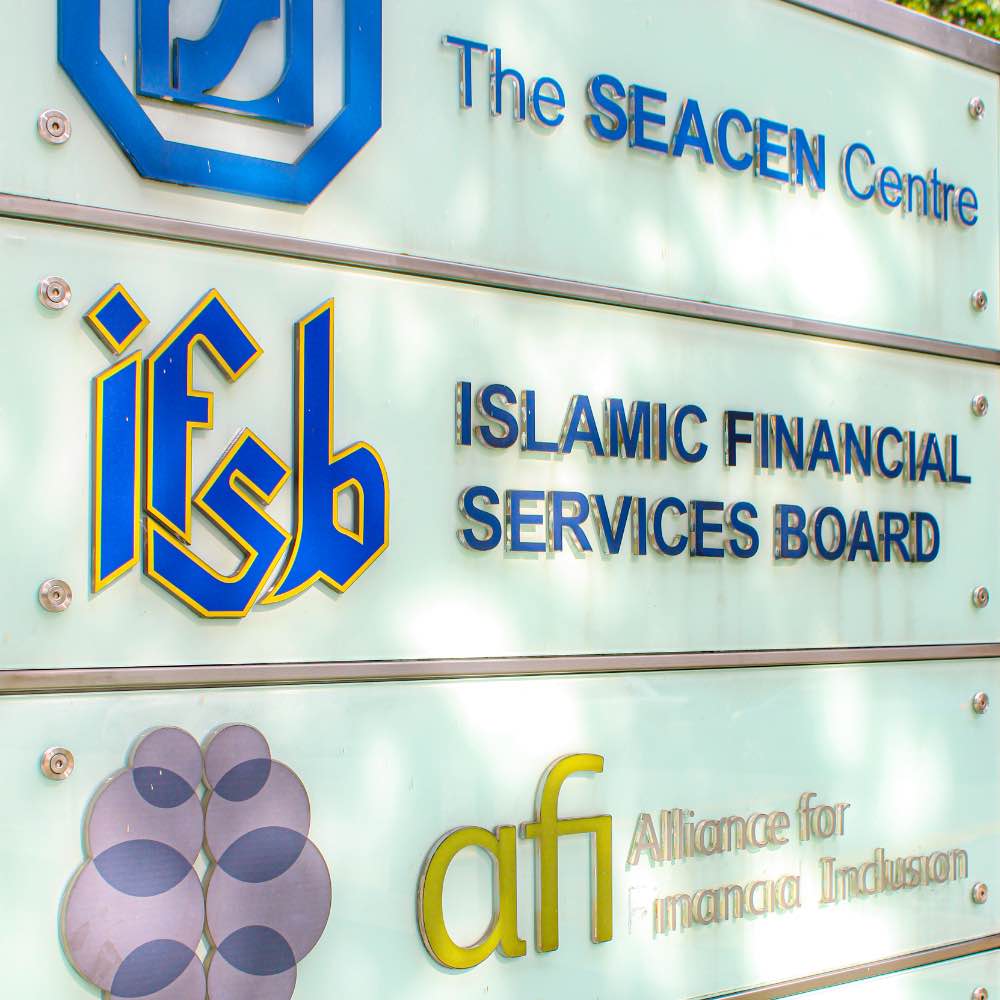
Another new program, Malaysia and China: International Relations and New Economies, is also accepting student applications for fall 2020. An extraordinary opportunity to witness vibrant economies across Malaysia, China, Singapore, and Indonesia, this groundbreaking program allows students to better understand Islamic finance, environmental diversity, ethics, and the interfaith communities that coexist within a globally dynamic economy.
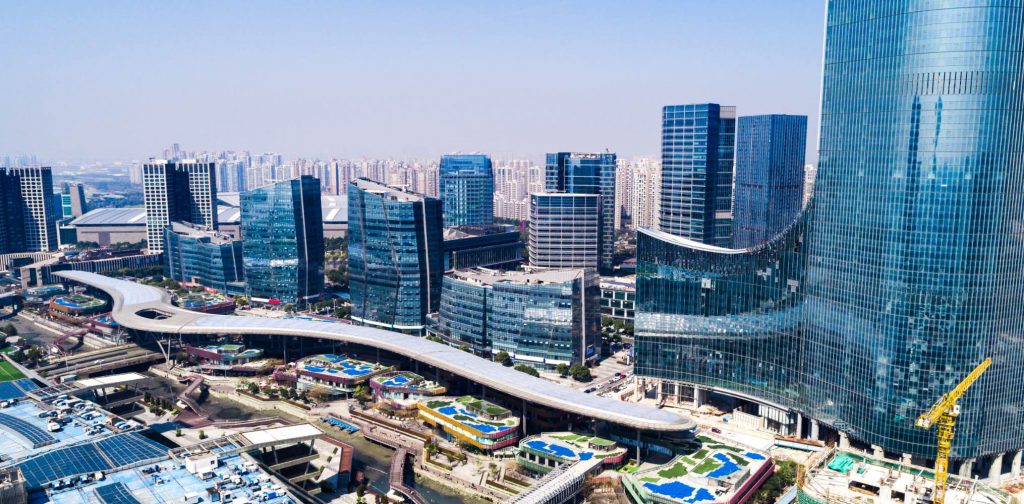
SIT Study Abroad is also excited to announce the launch of a new International Honors Program in fall 2020, International Relations: Global Governance, Human Security and Civil Society. Spanning four continents, this innovative program will introduce students to the inner workings of the World Bank, the International Monetary Fund, and the European Union, guiding them through comparative studies of neocolonialism, global finance, protest and resistance, peacekeeping, and youth activism. Students will live in Washington, DC, Brazil, France, and Senegal, while examining current global political trends and the rising challenges facing the post-World War II liberal world order.
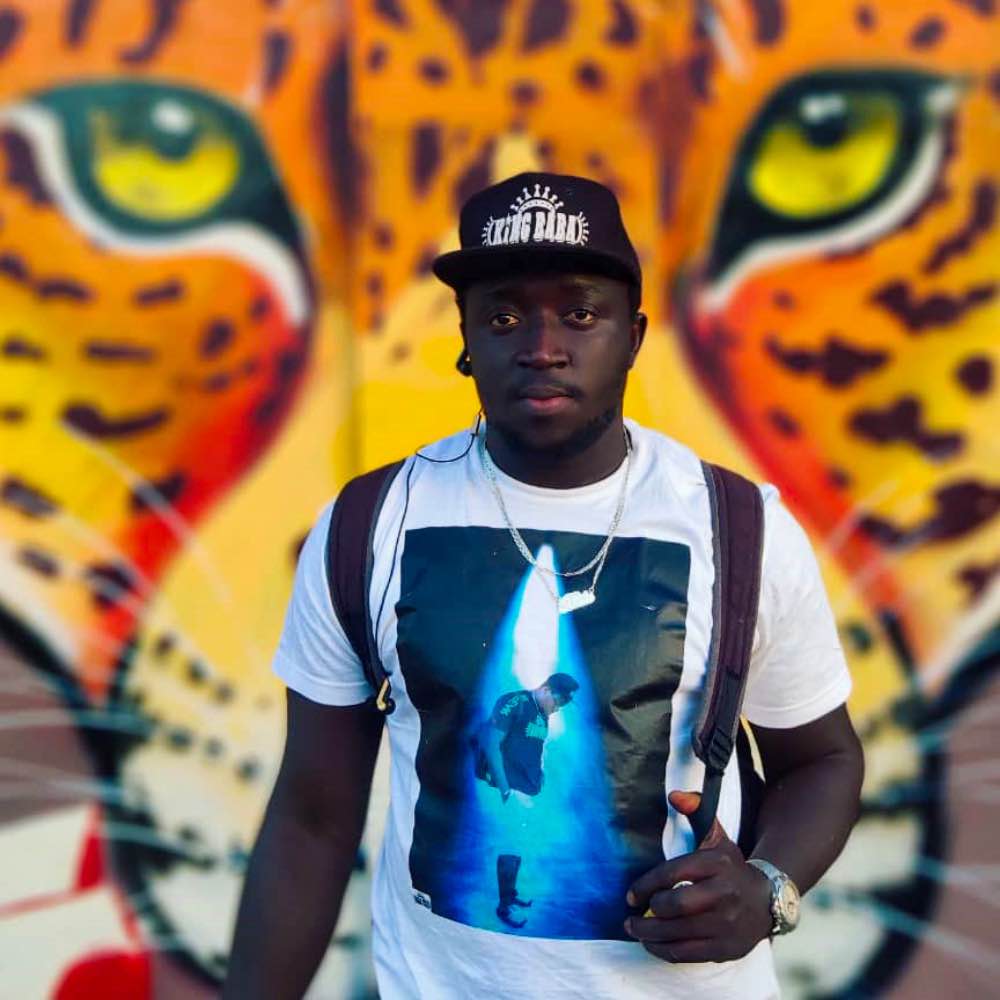
In Africa, SIT has named Dr. Cheikh Thiam as academic dean for Africa South of the Sahara, effective Jan. 1, 2020. Thiam currently co-leads SIT Study Abroad programs in Senegal focused on global security and religious pluralism. He also designed a pioneering undergraduate program that explores how hip-hop artists and cultural influencers are redefining Africa’s future. That program, Senegal: Hip-Hop, African Diaspora and Decolonial Futures, is accepting student applications for fall 2020.
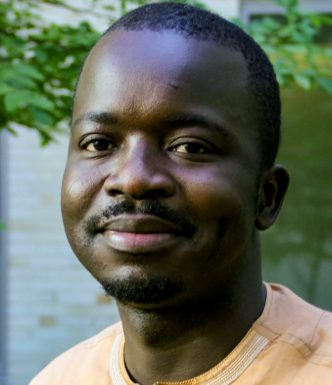
As academic dean, Thiam will lead one of the broadest portfolios of programs in Africa of any U.S. institution. SIT’s multidisciplinary portfolio of accredited undergraduate programs covers nine sub-Saharan countries and encompasses subjects such as biodiversity and wildlife management, multiculturalism and human rights, health policy and social transformation, and journalism.
All of these new and expanded programs build on SIT’s multidisciplinary stable of more than 60 immersive study abroad programs for undergraduates, covering Africa, Asia and the Pacific, Europe, Latin America, and the Middle East, along with comparative International Honors Program offerings in multiple locations.
We are pleased to announce the winners of SIT’s 2019 Photo Contest.
Thank you to all who submitted! The quality and number of submissions was remarkable and revealed SIT students’ great eye for capturing the learning experiences they’re enjoying around the world.
Here are this year’s talented winners.
Learning Moments
Sage Fox
Oregon State University
Ecuador: Comparative Ecology and Conservation, fall 2018
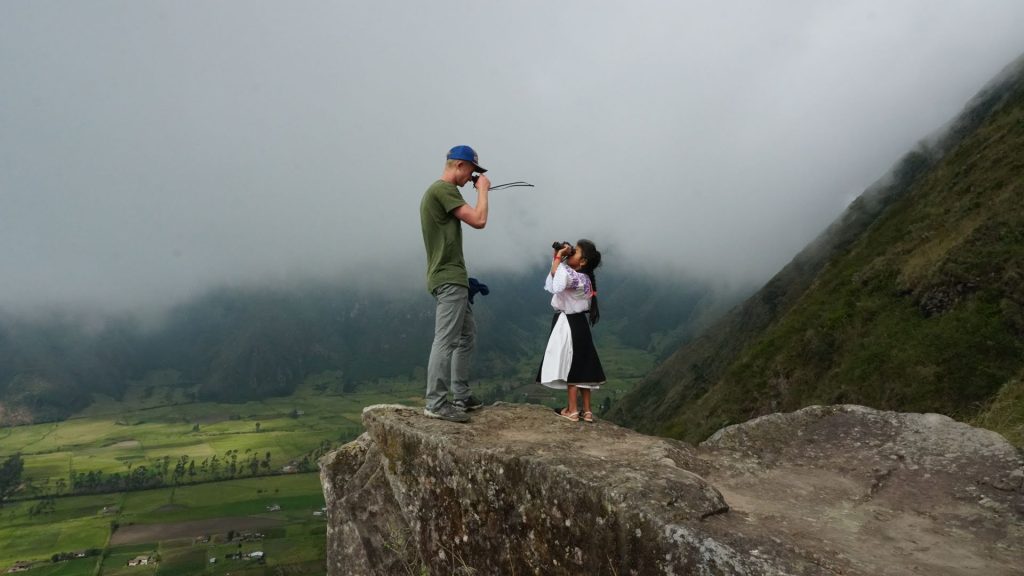
My friend Caleb and I conducted our ISP in a fairly remote village of Ecuador. When we first met our host family, our host sister took us on a hike to a rock that overlooks the valley below. She was very curious about us, and she was especially intrigued by our binoculars. When we reached the summit, she borrowed my binoculars to see if she could find a bear or her house below. Soon losing interest in that, she turned to look up at Caleb through the binoculars.
Action Shots
Anya Otterson
University of Denver
Mongolia: Nomadism, Geopolitics, and the Environment, fall 2018
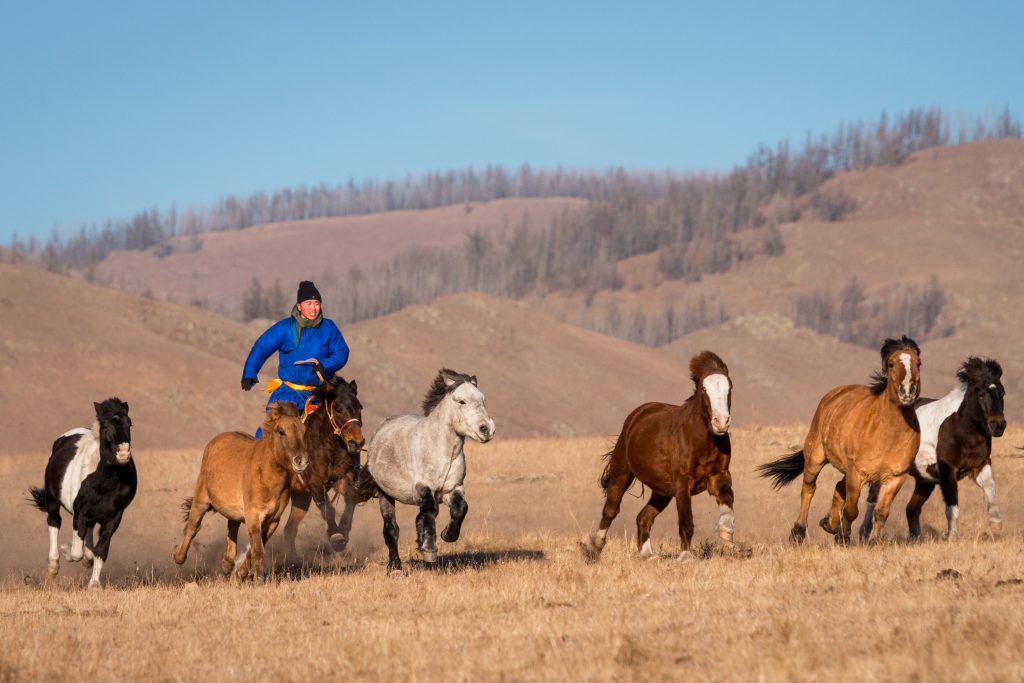
During my internship, we ran into a herd of my boss’s horses as we were driving back to camp one day. He got on the horse I was riding, put on my deel and boots, and herded them as fast as he could across the steppe while I drove ahead with my other boss taking photos.
The World Is Your Classroom
Thomas D’Anieri
Claremont McKenna College
Mongolia: Nomadism, Geopolitics, and the Environment, fall 2018

I woke up and had to use the bathroom, so I crawled out of my wool sleeping bag, put on two extra layers of clothes, strapped up my dog-fur boots, tiptoed out of the ger, and stopped in my tracks. I had never seen anything like it. The Milky Way hung above me and was unbelievably clear, yet the moon remained on the horizon. To even see the Milky Way in America it must be a new moon, or pitch dark long after the moon has set. Yet here the Milky Way sat in all its glory, rising next to the bright, nearly full moon.
Challenging Perspectives
Alyssa Avila
University of San Francisco
India: Public Health, Gender and Community Action, spring 2018
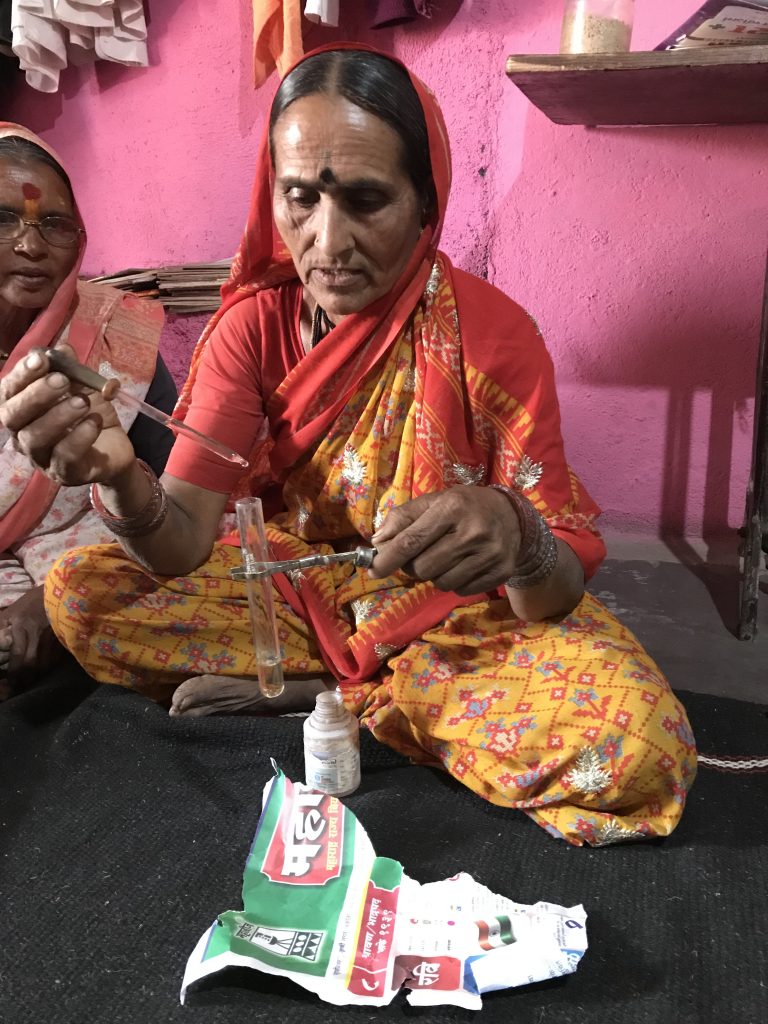
A village health worker from the Comprehensive Rural Health Project in Jamkhed demonstrates how she provides care and educates pregnant women within her own community.
Cityscapes
Madeline Ninno
Tulane University
Argentina: Transnationalism and Comparative Development in South America, fall 2018
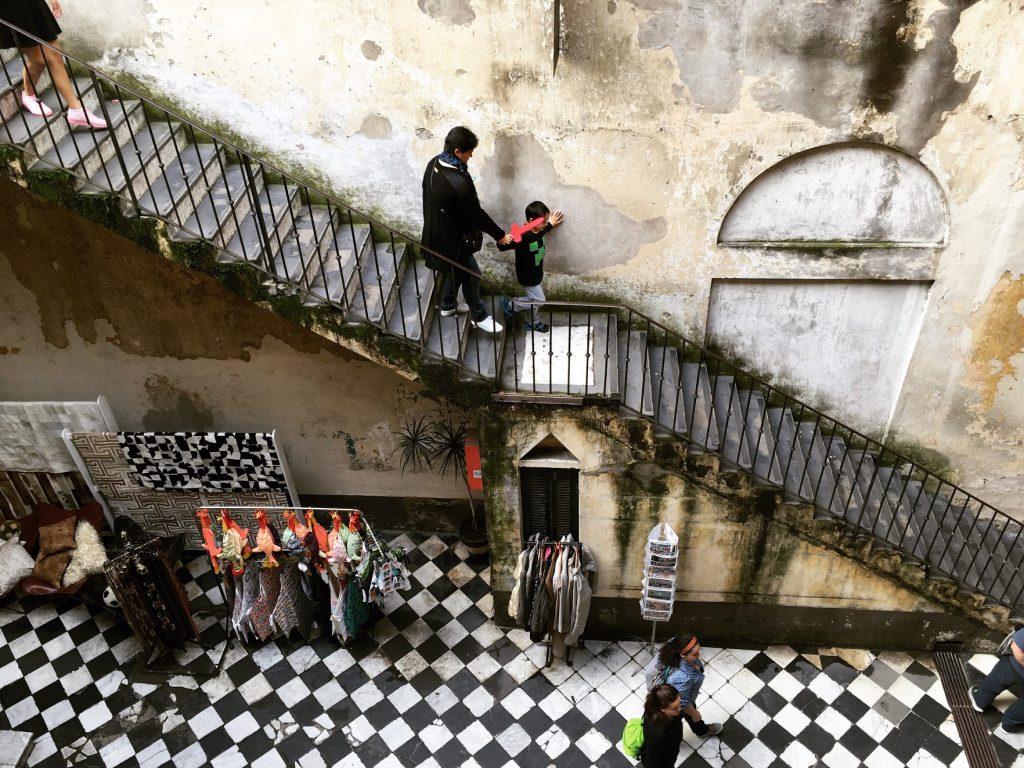
A courtyard in San Telmo, Argentina.
Honorable Mentions
Anna Stubbs
Carleton College
Chile: Public Health, Traditional Medicine, and Community Empowerment, fall 2018
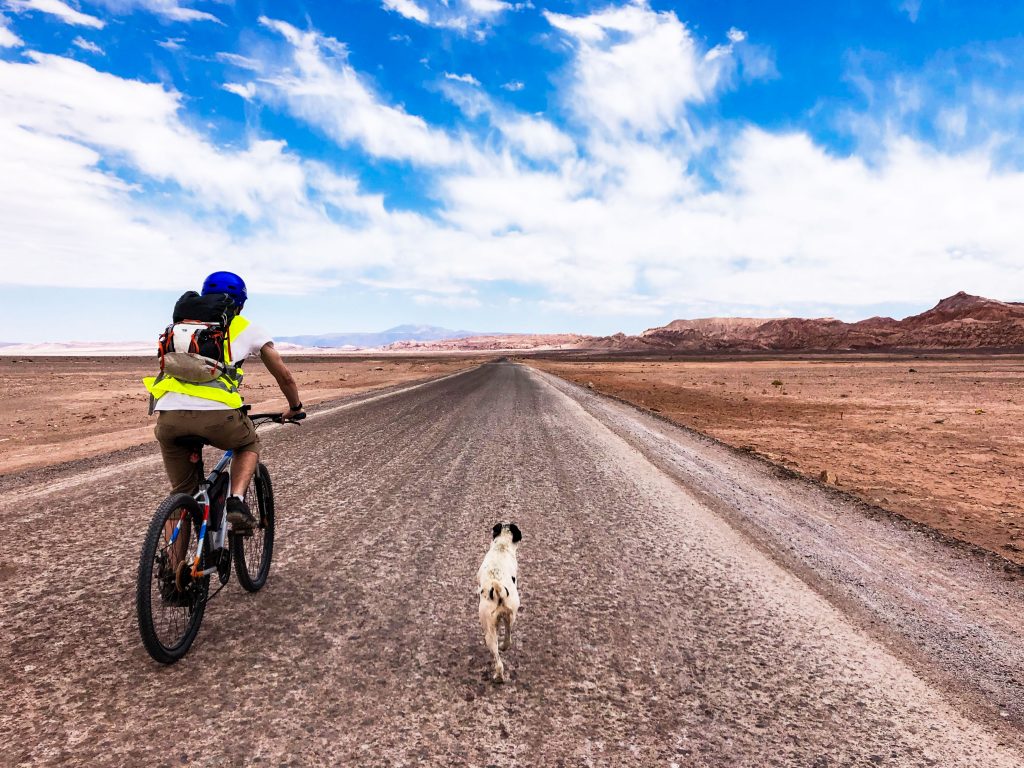
Sage Fox
Oregon State
Ecuador: Comparative Ecology and Conservation, fall 2018
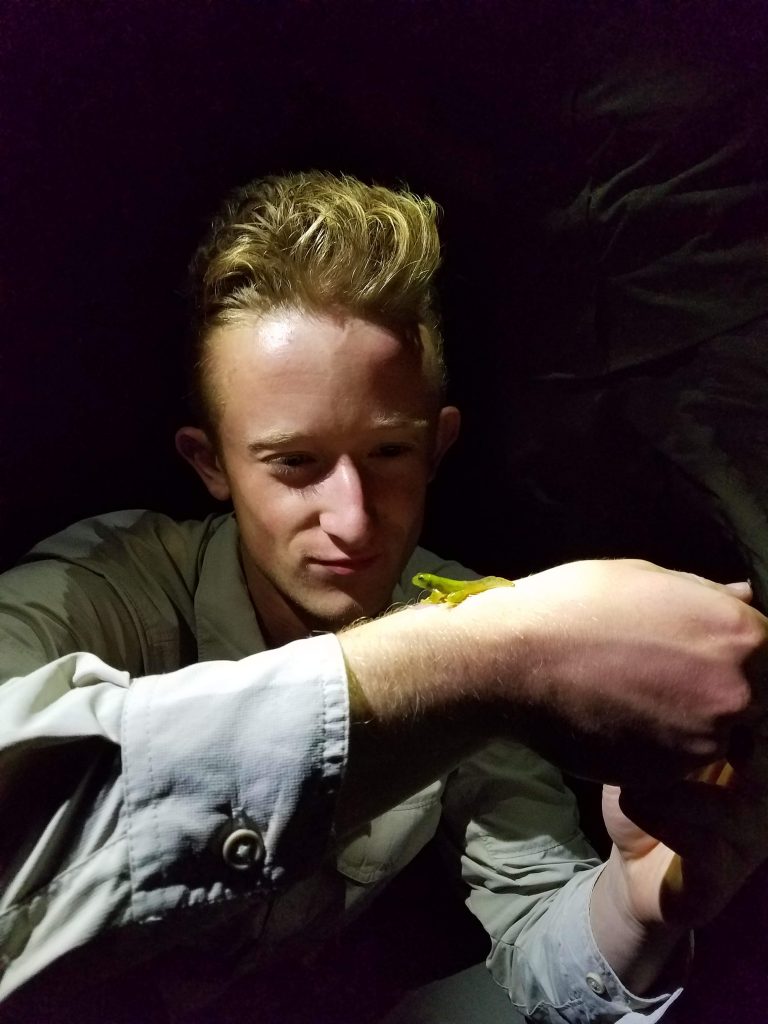
Nicole has worked closely with SIT since 2011, coordinating multiple IHP global comparative programs including Health and Community, and Cities in the 21st Century. Nicole recognizes the pedagogy of IHP as closely aligned to her own passionate commitment to the exploration of her country through narratives that too often go unheard, bringing to life an ethos of community in her work, which she brings to her field programs. She is part of the collaborative leadership team for SEED, an award-winning nonprofit in Cape Town that teaches resilience through permaculture practices, engaging the green economy, and developing skills for social enterprise. Nicole holds a diploma in culinary arts and accreditation as a South African cultural heritage tour operator. She has traveled extensively throughout South Africa as well as neighboring African countries and brings a wealth of experience and insight into both the historical and contemporary nuances that shape life in South Africa today.
she/her/hers
Dr. SherriLynn Colby-Bottel received her PhD in cultural anthropology from the University of Virginia in 2012, and a BA in anthropology and an MA in music, with distinction, at California State University, Fresno. From 2005 to 2012, with support from the National Science Foundation and the University of Virginia Faculty Senate Fellowship Award for Scholarly Achievement and Excellence in Teaching, she conducted ethnographic research on disaster recovery, nonprofits, urban traditions, authenticity and sincerity in the local production of music, and community-based musical activities in New Orleans, Louisiana. Her research explored issues highlighted by disaster and recovery: how racial inequities align with health disparities, how the built environment and social policy act as determinants of recovery, and the vital role of community in one’s ability to achieve well-being. Dr. Colby-Bottel has worked and volunteered for several nonprofit organizations in the last decade while also researching how nonprofit organizations retain and reward labor. She has worked in higher education for more than 25 years as both faculty and administrator in four distinct university settings. She has been with SIT since 2011.
Courses Taught
Select Publications
Colby-Bottel and Handler. (2021 online, 2022 to print). Making the Scene and the Making of a Scene: The Loose Marbles on Royal Street in Post-Katrina New Orleans. Anthropology and Humanism. https://doi.org/10.1111/anhu.12354
Lanning, Colby-Bottel, Sakash, and Hagos. (2018). Humanizing High Impact Practices: Leveraging Learning Communities. Global Impact Exchange, Diversity Abroad, Special Issue on High Impact Practices, Fall 2018, pp. 28
Colby-Bottel, S. (2021). Review of Dr. Gregory Button’s “Disaster Culture: Knowledge and Uncertainty in the Wake of Human and Environmental Catastrophe”. Environment and Society: Advances in Research, Vol. 3, pp. 123-124
Select Presentations
Colby-Bottel, S. (November 2020). Being an Anthropologist with Students Abroad: Disruption, Identity, and Change [Conference presentation]. American Anthropological Association 2020 Annual Meetings, virtual, USA
Colby-Bottel, S. (November 2018). After Disaster: Critical Explorations of Recovery [Conference presentation, panel organizer, and chair]. American Anthropological Association 2018 Annual Meetings, San Jose, California, USA
Colby-Bottel, S. (November 2010). Civic Associations, Popular Art, and Local Democracies in New Orleans Traditional Jazz Music-Making [Conference presentation]. American Anthropological Association 2010 Annual Meetings, New Orleans, Louisiana, USA
Research Interests
Holistic community well-being
Ethnography
Ethical considerations of representation
Inclusivity in the practices of study abroad
Faculty mentoring
Program design
Amala first hosted SIT students as homestay mother 30 years ago. A lifelong leader in Tibetan education in exile, she also runs our Dharamsala program center, complete with extensive library and IT resources. Amala’s support of our students in Dharamsala, whether on excursion or especially during the ISP period, is invaluable.
Patricia grew up in Omaha, Nebraska, and completed a BA in English literature with minors in linguistics and creative writing at Boston College. She began studying colloquial Tibetan in 2013, taking intensive lessons at the Esukhia language school in Dharamsala, India. That same year, she was a Boston College study abroad student of Tibetan language and Buddhist philosophy at the Rangjung Yeshe Institute in Boudha, Nepal. Patricia developed a particular interest in modern Tibetan poetry and literary translation and completed a translation project on Tibetan poetry, for which she conducted research in Boudha and Dharamsala. Patricia is deeply interested in Tibetan and South Asian cultures, languages, and literature.
Rinzi was born in Solukhumbhu in the Everest region, east of Kathmandu. He came to Kathmandu at the age of three and attended Daleki Secondary School. He has been with SIT since 2009, where he handles finances and ensures the proper functioning of the program house. He acts as right hand to the academic director.
Isabelle received her doctorate in oriental studies from the University of Oxford (2002). She came to Kathmandu in 1990 as a volunteer teacher in a Tibetan monastery school and returned in 1992–1993 to study Tibetan and Sanskrit at Tribhuvan University.
Isabelle’s research and experience have focused on classical philosophical, religious, and literary texts. She has studied those texts in the context of exposure to and interaction with contemporary cultures, people, politics, and landscapes, principally along the Himalayas, in the Tibetan regions and neighboring areas, and in South Asia. Her dissertation examined an apparent paradox in Tantric Buddhism, using Indian and Tibetan sources. Isabelle was a founding member of the Clay Sanskrit Library team, preparing bilingual editions and translations of Sanskrit literature. In addition to managing and co-editing the whole series, her own volume is a 7th-century coming-of-age novel, a Sanskrit narrative of 10 young men’s experiential education and study abroad.
Isabelle has taught graduate and undergraduate courses in Indo-Tibetan Buddhist studies at the Universities of Oxford and London and at Mahidol University in Bangkok. She has researched and lectured at institutions across the world and led a Royal Geographical Society Oxford University expedition to the Tibetan plateau.
Brought up in the mid-Himalayan city of Rishikesh, the birthplace of yoga, Vivek has offered yoga education to Indian and international students for more than 15 years. He runs yoga meditation camps, is a certified yoga teacher, and holds a university degree. He also studied in traditional Indian fashion under the guidance of self-realized saints of the Himalaya. He possesses in-depth knowledge of the Vedantic Upanisadic culture, and his interactive style of teaching creates a positive platform for student learning.
Manoj has a bachelor’s degree in humanities from the University of Rajasthan. He has worked with SIT for more than 10 years and is responsible for student health services and program logistics. During the summer, he works as the program coordinator for the summer agroecology program in Sikkim. Previously, he managed his own pharmaceuticals business and was a tutor. He has traveled to mountainous terrain on student excursions and loves photography, dance, and playing cricket and badminton.
Dr. Sharma holds BA, MA, and PhD degrees in Hindi literature from the University of Rajasthan, Jaipur. She has been teaching Hindi as a foreign language to beginning, intermediate, and advanced students for more than 15 years with American Institute of Indian Studies (AIIS) and SIT India: Sustainable Development and Social Change, both based in Jaipur, Rajasthan. Additionally, she has coordinated language learning field visits and the AIIS Summer Intensive Hindi Language Partners program organized by the U.S. Department of State. She is interested in Hindi grammar, phonology, morphology, and poetics; community interaction; and research methods. Her poetry and short stories have been published in Indian magazines. She enjoys listening to Bollywood music, singing, cooking, and gardening.
Anjani has a master’s degree in Aacharya from Shri Lal Bahadur Shastri Rashtriya Sanskrit Vidyapeeth, Delhi, a master’s degree in Hindi literature from Indira Gandhi National Open University, and a bachelor’s in education with a focus on Hindi and Sanskrit language instruction. She has more than 11 years’ experience teaching Hindi in public and private institutions. She interned for six months in Johannesburg, South Africa, and taught Hindi at the American Institute of Indian Studies, Jaipur. She has translated textbooks and other material from English into Hindi. Anjani is an innovative teacher with extensive knowledge of Indian culture, traditions, and development. Her favorite pastimes include reading, gardening, and coin collecting.
Archna has taught for SIT Study Abroad in India since 2008. She holds a master’s degree in English literature and a bachelor’s in education from Rajasthan University. She has taught for study abroad programs for many years and is affiliated with On-Site Language Services. She has in-depth knowledge of Indian cultures and traditions and assists her students with cross-cultural learning. She is fluent in Hindi, Gujarati, and English. Her favorite pastimes include dancing, reading, and traveling.
Goutam earned a master’s degree from Banaras Hindu University in Varanasi, India, in 1989. He has taught Hindi for more than 12 years for study abroad programs in India and worked with Antioch University’s Buddhist studies program and for On-Site Language Service’s International Language Learning program. Goutam previously worked with SIT’s India: Sustainable Development and Social Change program.
Goutam is fluent in Hindi, Bangala, Gujarati, Bhojpuri, Brij, and English and is an expert on Indian culture.
Bhavna has worked with SIT Study Abroad since 2004 as a language teacher, student affairs and homestay coordinator. She holds a BA from Lucknow University and recently completed a postgraduate diploma in rural development with a specialization in public health in India.
Bhavna previously conducted Hindi workshops for Japanese and Canadian students. She is fluent in English, Hindi, Rajasthani, Avadhi, and Nepalese. She is an athlete and Kathak dancer.
